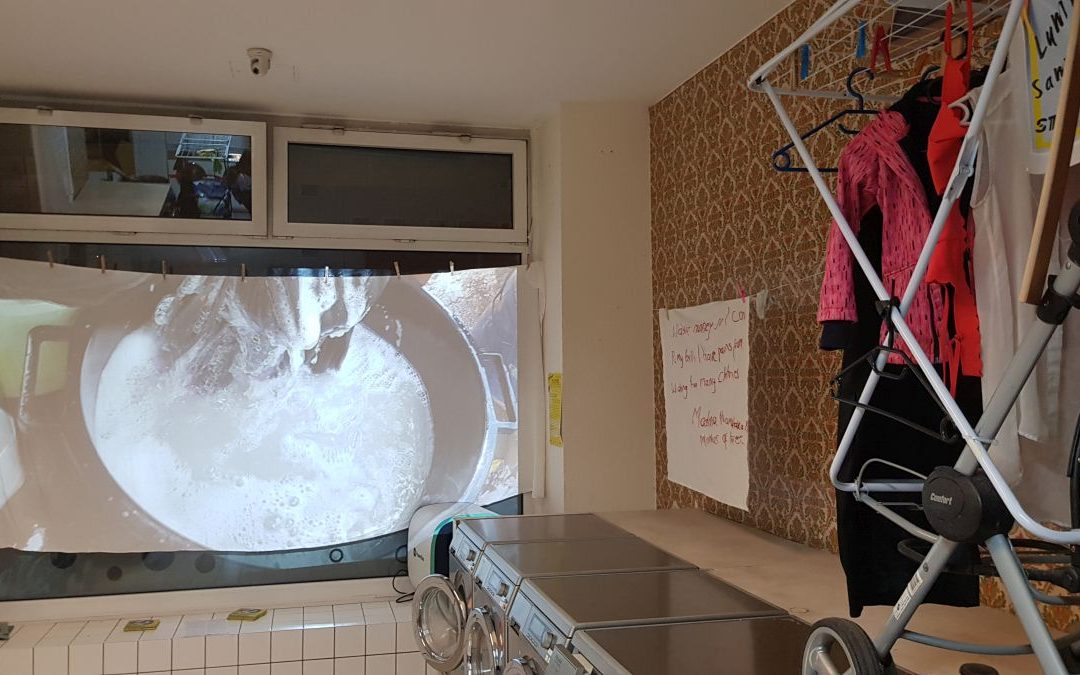
The Big Wash
The Big Wash
The BiG Wash - installation, performance, interventiuon at Waschsalon 115, Torstraße, Berlin-Mitte
'I don’t like washing but my job for now requires that I wash for my boss and her family. The children play outside, and the clothes get dirty. Sometimes, I hide what I find difficult to wash so that I don’t have to wash them.
I need this job so I must pretend that I like it and it’s the only way I get money to take care of my daughter and my family.' Juliet Laker, house help/maid
STREETWARE X MIVUMBA – barbara caveng, Beatrice Lamwaka | Eria Mutalwa | Jim Joël Nyakaana | Josephine Nakiyimba – SSuubi Design | KisituAloysius | Rose Katusabe | Ruth Faith Nalule
Concept and realisation at Waschsalon 115 - STREETWARE saved item – Alice Fassina, barbara caveng, Lotti Seebeck, Stephan C.Kolb
Special thanks to Tobias Breithaupt, managing director of Waschsalon 115 in Berlin - Mitte
A woman scrubs the 'big laundry' with a brush, maltreats the hems that limit her life. The traces are erased - the stains shine blindly. From 15 to 30 November 2021, a white sheet in the window of laundromat 115 on Berlin's Torstraße became a projection screen for videos in which women's hands rubbed textiles, providing an example of an economy of washing that is predominantly female but does not appear in any gross national product. Passers-by who walked across the threshold of Berlin's most famous laundromat on Rosenthaler Platz were confronted with images hurling at them from the drums of the machines: In colourful basins, hands wringed and trafficked the textile accumulation of their household. From pants to laundry, no intimacy was hidden from them, no trace of bodily divestment spared.
"Laundry, washing welfare" - The role of women is enmeshed in the history of washing ; colonial continuities are played out in the global divide between eco-wash and water bucket.
During an artist residency in Uganda in summer 21, barbara caveng let herself be guided by the laundry spread out on meadows and over hedges. Together with the author Beatrice Lamwaka, the fashion designer Ruth Faith Nalule, the photographer Jim Joël Nyakaana and the social entrepreneur Kisitu Aloysius Musanyusa, laundry became their material for an artistic research and exploration about economy, ecology, feminisms and coloniality.
I have to do it - it is my routine
'I always have a house help to wash but sometimes I must do it on my own. I don’t like but I must do. I have my clothes and my two daughters to wash. Every time, I am washing, I am thinking about money and how to get it.' Giovanna Lamunu, Lawyer
'I wash twice a week since the baby is always in pampers. I have a positive attitude towards washing but the problem finding time to wash because it takes so much time. There is a day when I kept my baby’s clothes not washed for two days and the stains refused to get off, because she had started drinking and eating, I think these ones need to be soaked with a strong detergent like for two days.
And I like clothes with a good smell after drying, so I prefer sunlight washing powder and put sosoft to soften her clothes and have a nice smell. If you are a stay home mother, I think washing every day is better or after one day; soak one day and wash the next day, and also, I must say that it's expensive to buy soap and other detergents.' Fortunate Tusasirye, new mother and Programme Assistant, FEMRITE
'I am responsible for my hygiene and health, so I must wash. I was for my partner as well. Sometimes, I wish he could assist me, and we wash together, and I also wish he could wear his clothes for a little longer, so I don’t have so many clothes to wash.' Giovanna Lamunu, Lawyer
to the left: Beatrice Lamwaka embroidering quotes from conversations about washing on bedsheets & to the right: 'female economy' barbara caveng © Lotti Seebeck
In cooperation with Beatrice Lamwaka, a series of interviews on the subject of washing was created. These explored together with the laundresses the physical and psychological effects of manual textile care without electricity and water as available commodities and explored the impact on the individual biographies, self-realisation and professional lives. Excerpts from the conversations were audible in one of the salon's clothes dryers: 'while doing laundry', one of the women interviewed said, she also thought about how her family could survive at all. 'I have to do it' - Rose Katusabe's voice rang out in the drum. 'It is my routine.'
Under the titel How to measure a man through handwashing an essay by Beatrice Lamwaka is published on our website.
Is the washing machine the great liberator of women?
We explored this question in series of events at the salon with laundry maestro Stefan Targatz, director of the Laundry Museum Eberswalde, we embroidered with students of the master program Art in Context of the UDK while Beatrice Lamkwaka told about the daily routine of washing by women’s hand in Uganda and fashion designer Ruth Faith Nalule sang a song of praise to love as the driving energy for any human action. Meanwhile, visitors to the laundromat unloaded their items from suitcases and bags into the washing drums and chose the appropriate program to wash their dirty laundry clean.
As a highlight we presented the industrial film ‚Wäsche - Waschen- Wohlergehen‘ (Laundry - Washing - Wellbeing), which was produced by Universum Film on behalf of the Henkel Group in 1931 and premiered in 32, a tribute and testimony in moving images to the belief in progress according to the social rules of a patriarchal society.
On the photographs: Alice Fassina | barbara caveng | Ruth Faith Nalule | Beatrice Lamwaka | Jim Joel Nyakaana | Kisitu Aloysius Musanyusa | Sidney Noemi Stein | Stefan Targatz | ©Lotti Seebeck
ps: Returning to Uganda, Ruth Faith Nalule sought out a laundromat - they exist in Kampala too, but their use is reserved for the few. During a telephone conversation on december 17 she demanded 'the right for all to use a washing machine - Our country must develop towards this before we die over the basin.'
'The Congress on the Clothes Dump' described a series of events between September and November 2021 dedicated to an inclusive and participatory philosophizing about the meaning of clothes, their production, distribution and consumption. Invited guests and random attendees digged into textonic layers, searched for solutions, questioned the ethics of the second skin. Clothing protects and adorns. It represents basic aesthetic and existential needs, but its mode of production destroys the environment on a large scale and endangers the physical and psychological well-being of the people who cope with the manufacturing processes in socially intolerable conditions. How could sustainable production and economy look like - this is what we explored between November 16 and 28 together with author Beatrice Lamwaka, fashion designer Ruth Faith Nalule, photographer Jim Joel Nyakaana and Social Entrepreneur and environmental activist Kisitu Aloysius Musanyusa in a multi-perspective way. Venues for the public pondering were Bikini Berlin, the laundromat 115 in Torstraße and the Vestithek in the Helene Nathan Library.

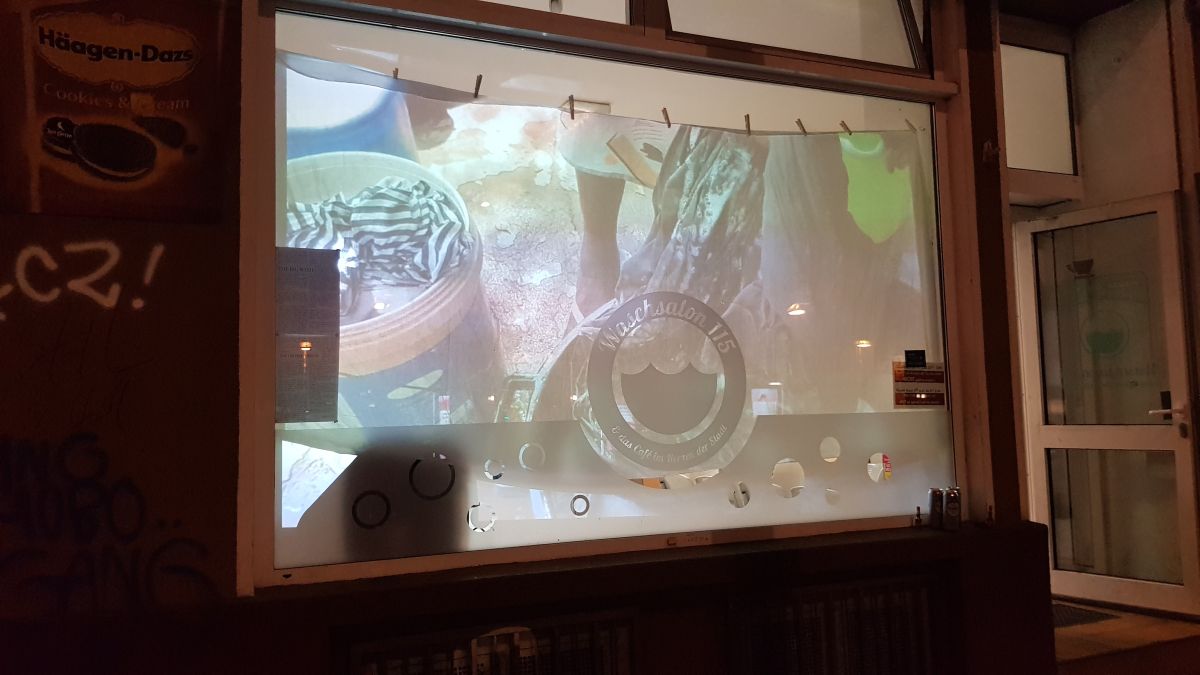
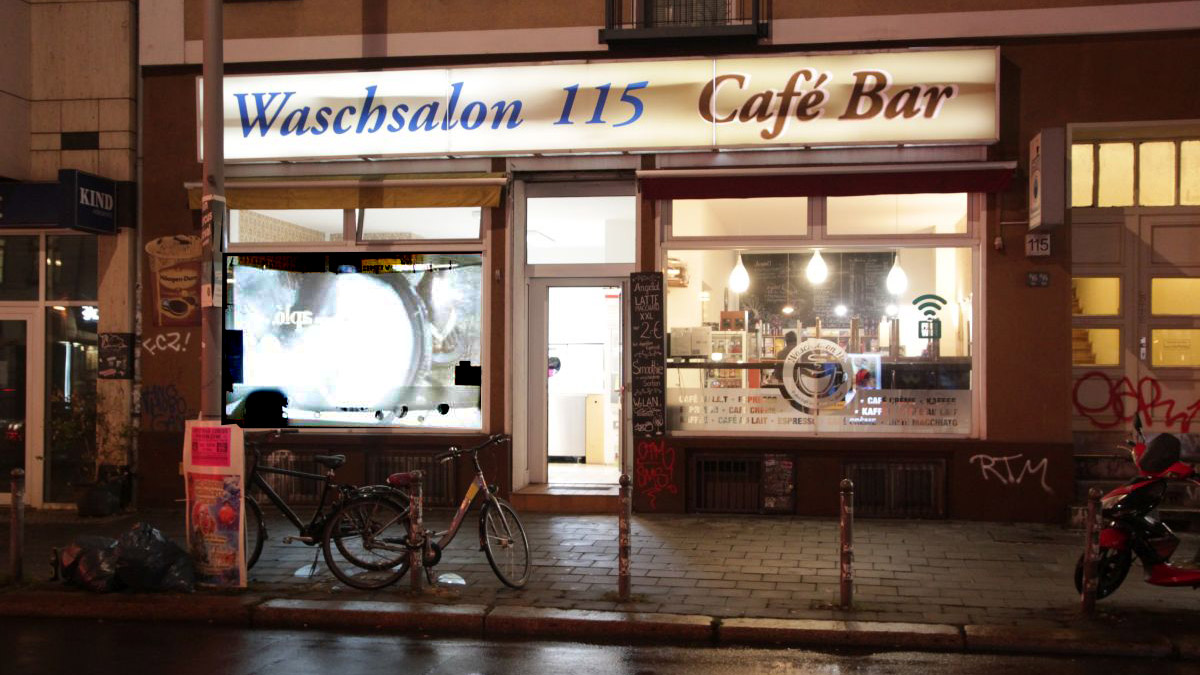
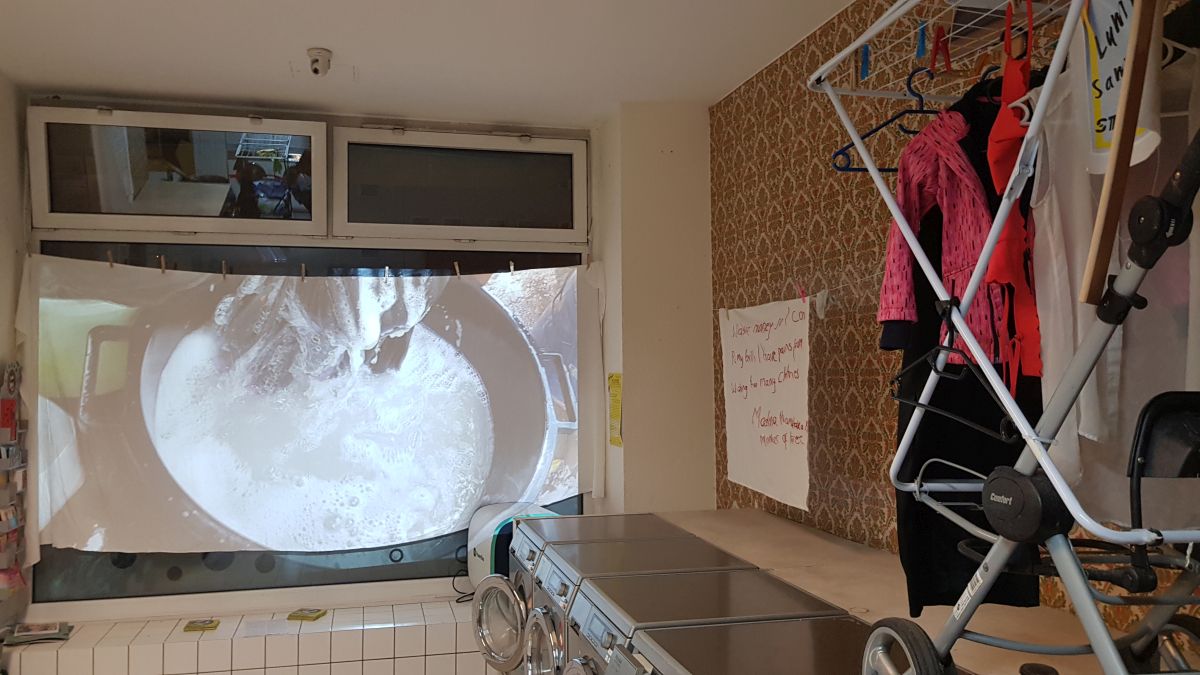
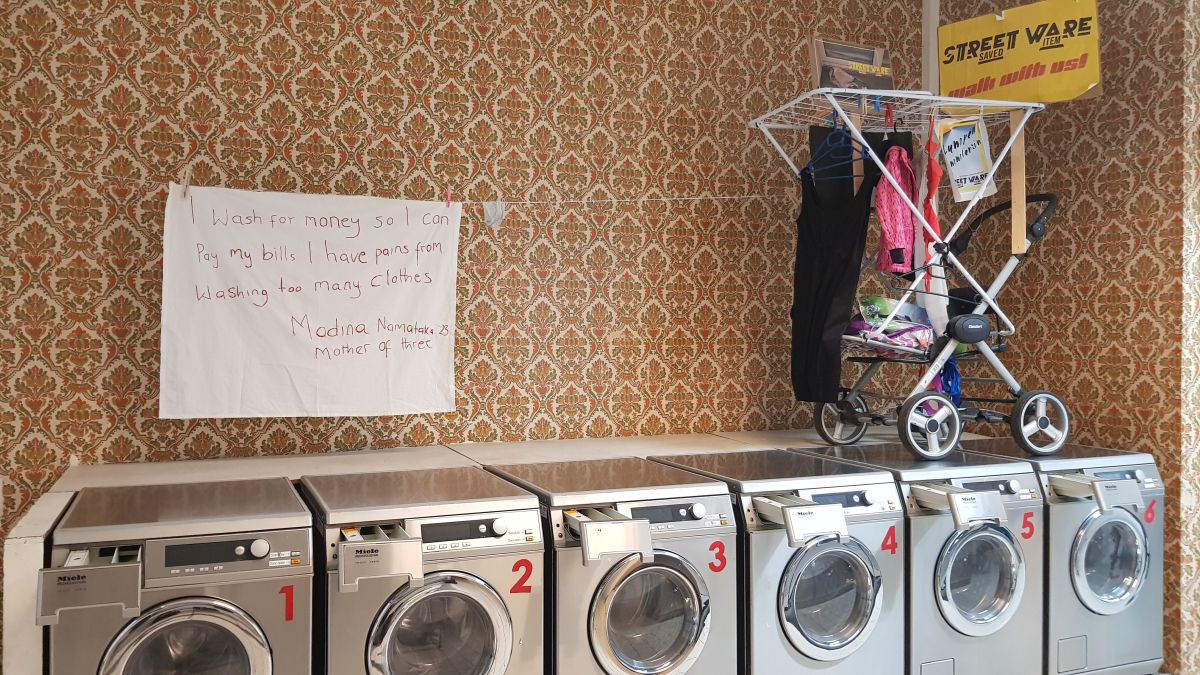
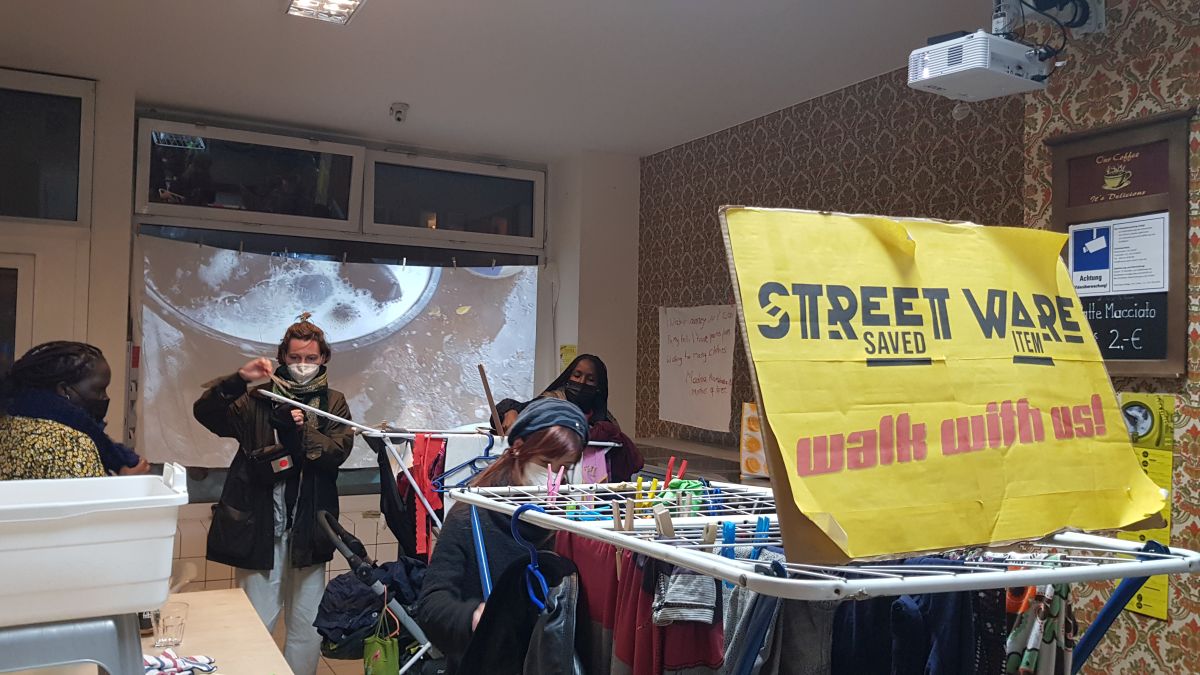
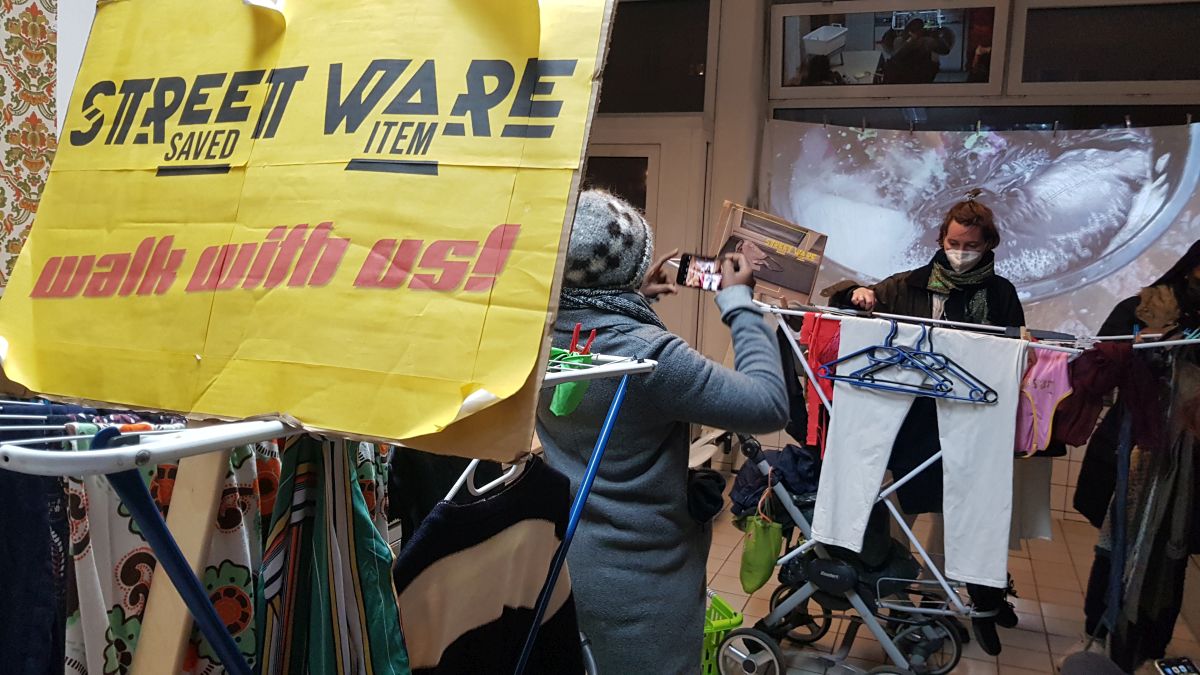
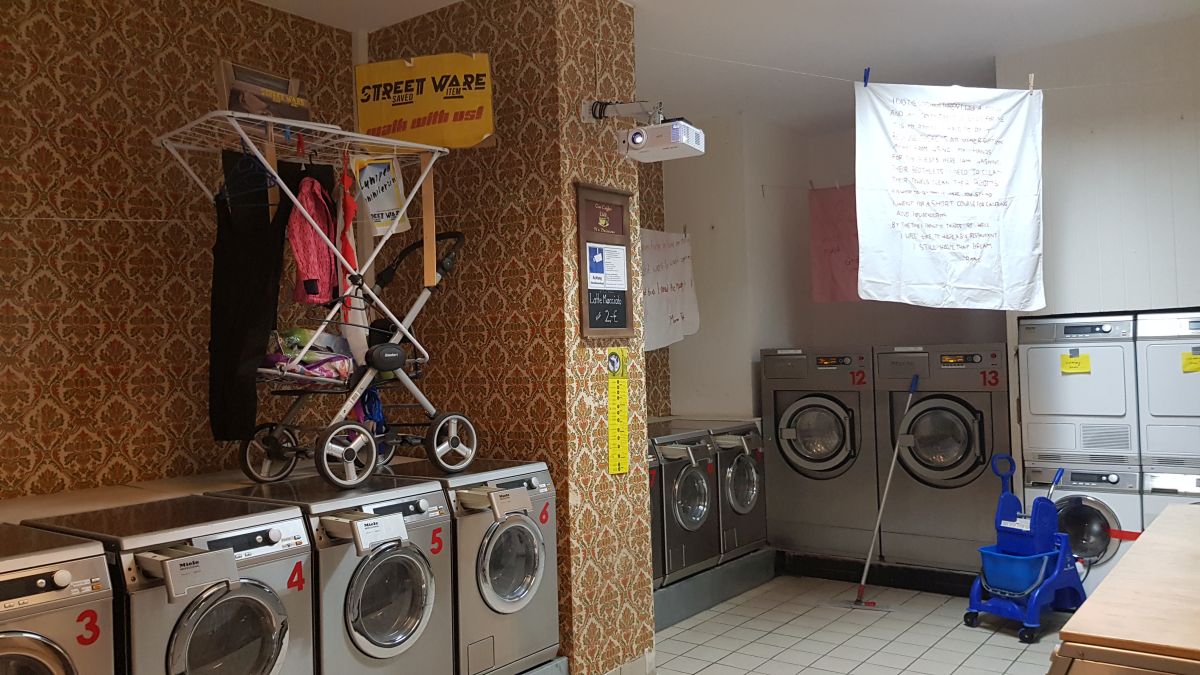
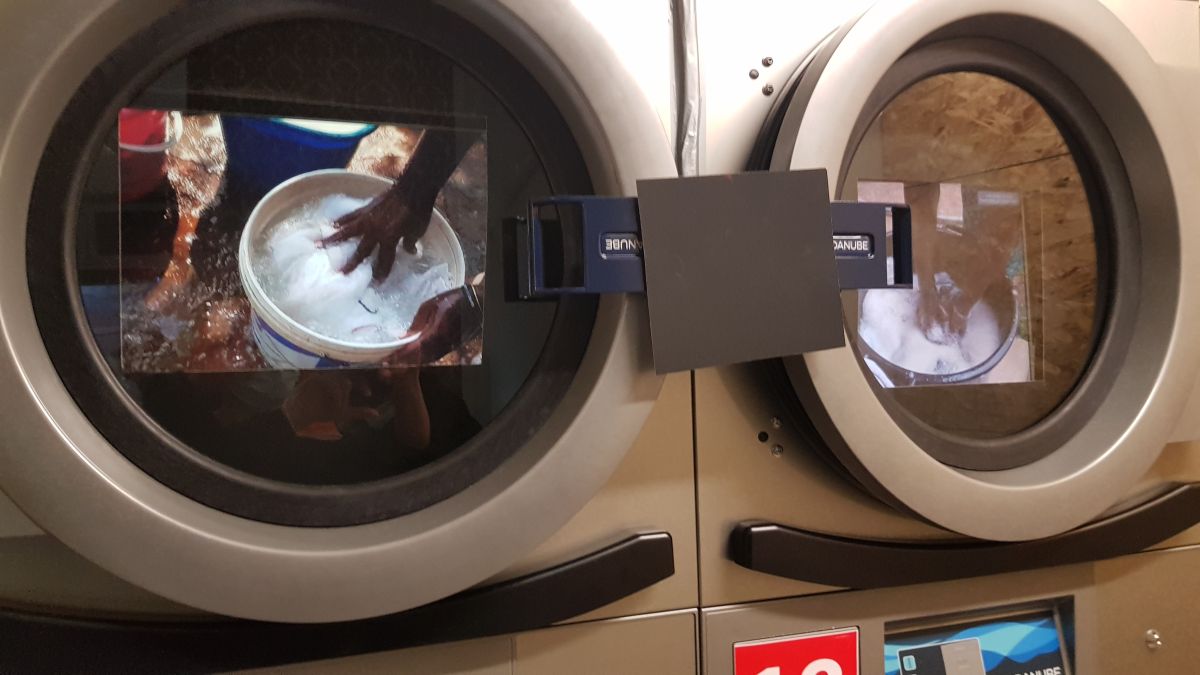
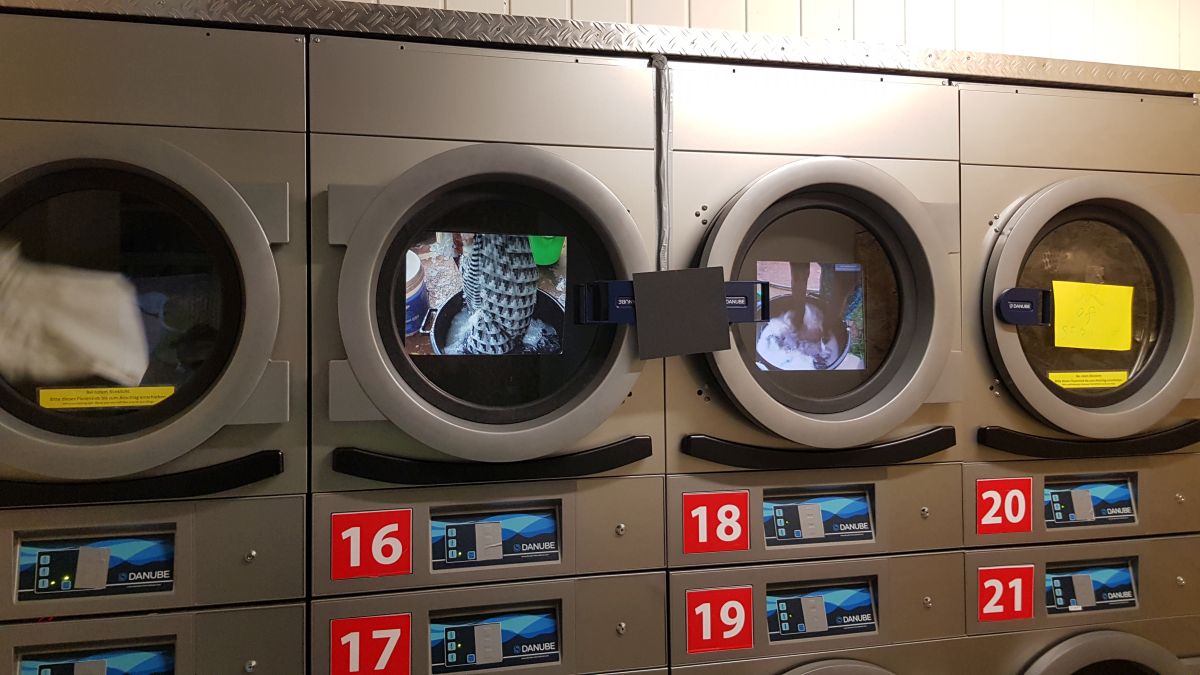
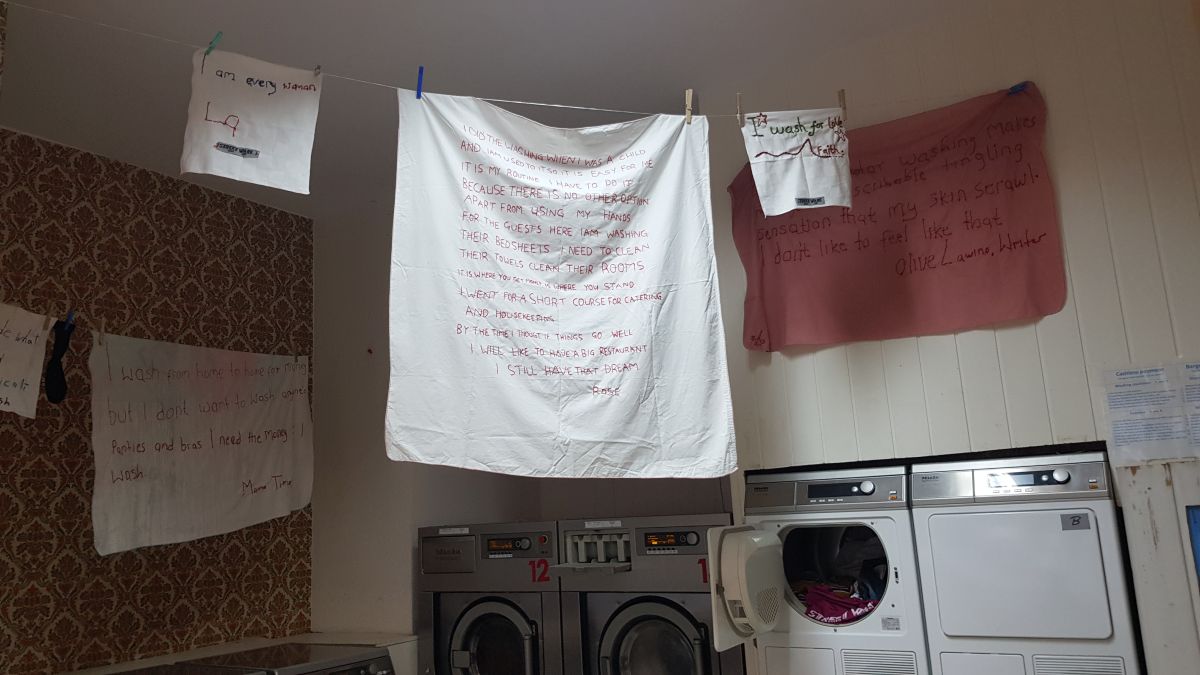
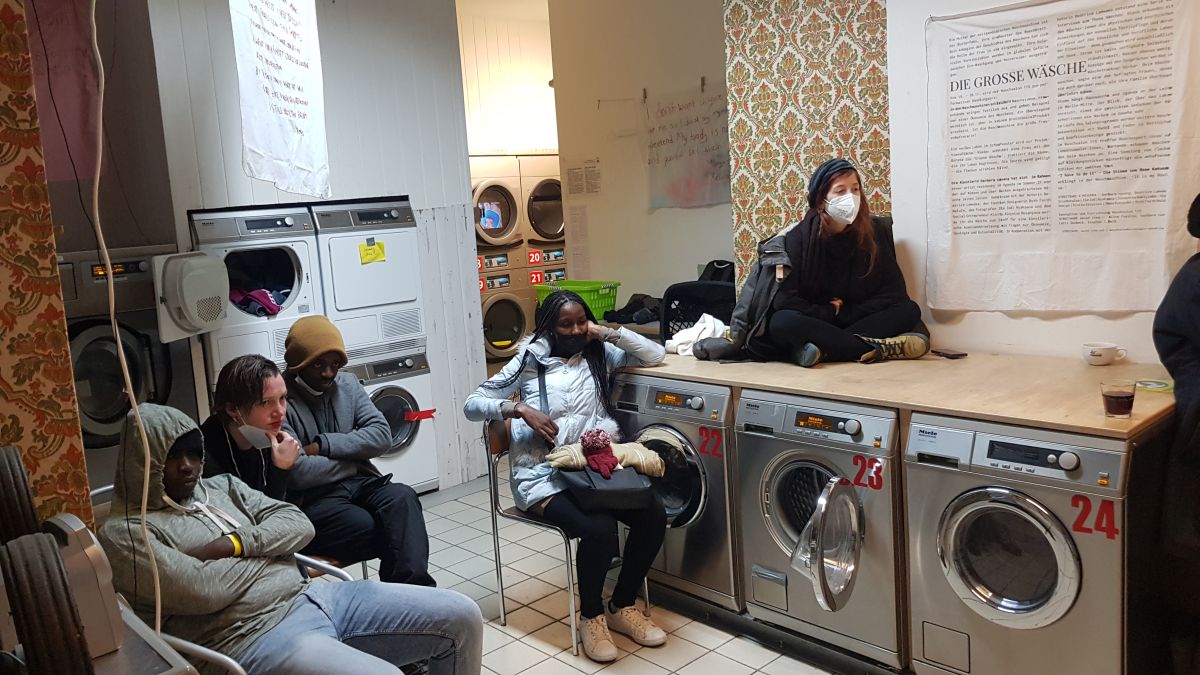

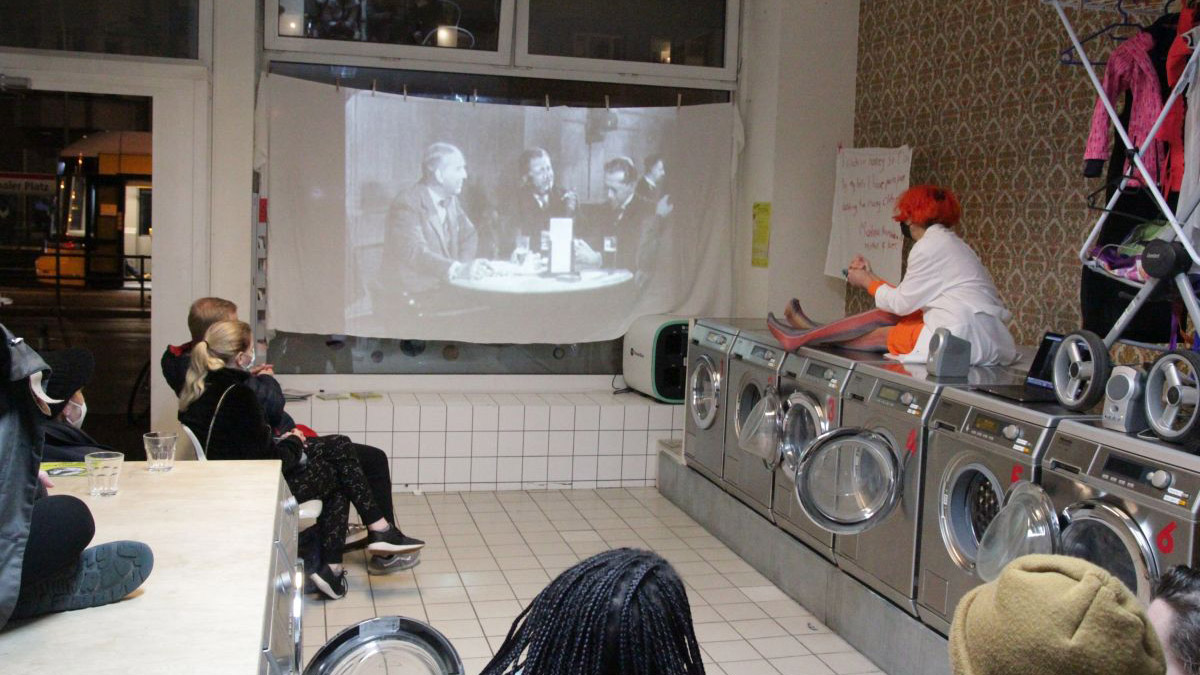
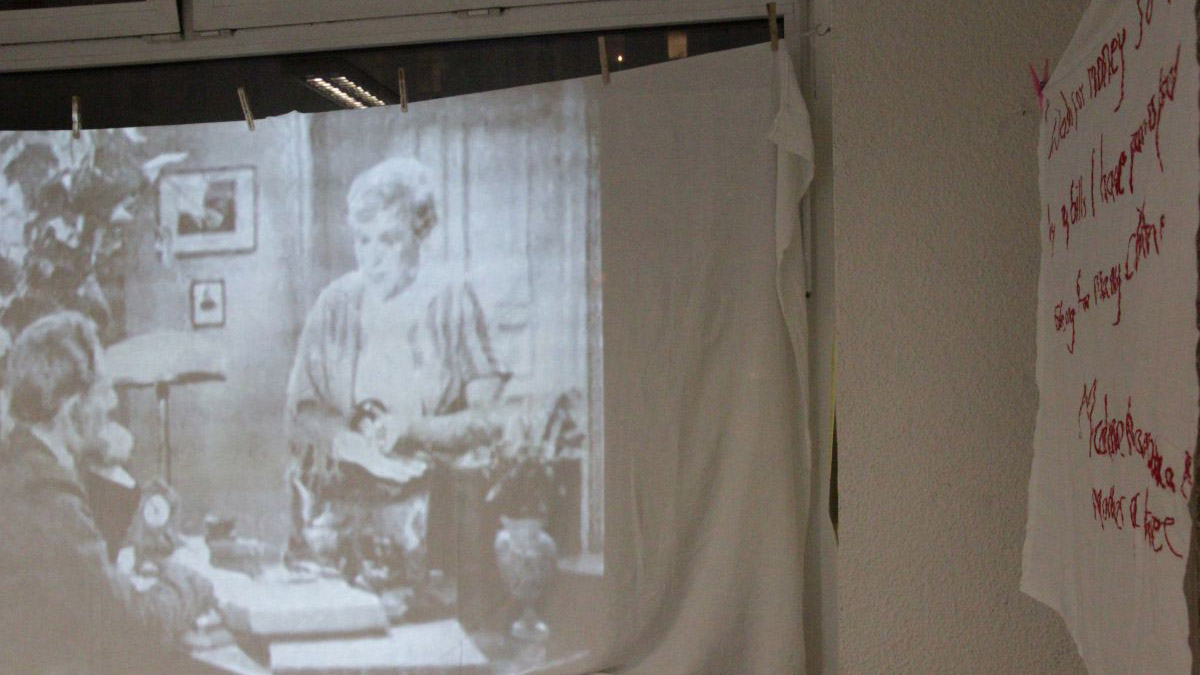
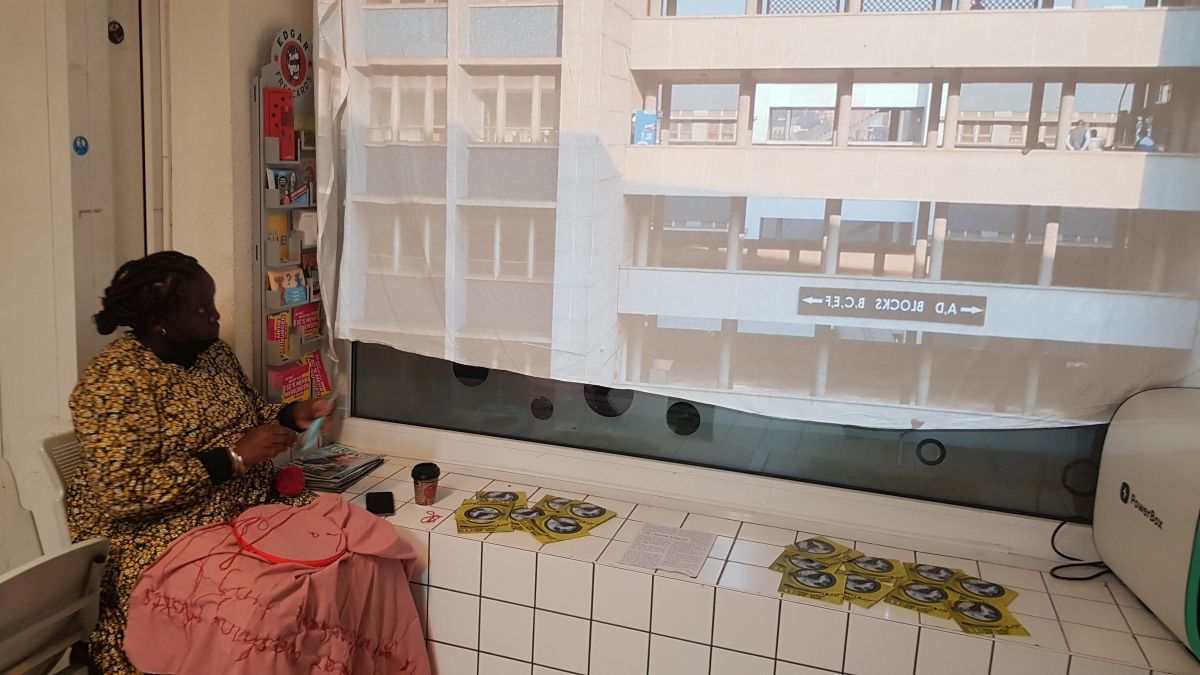
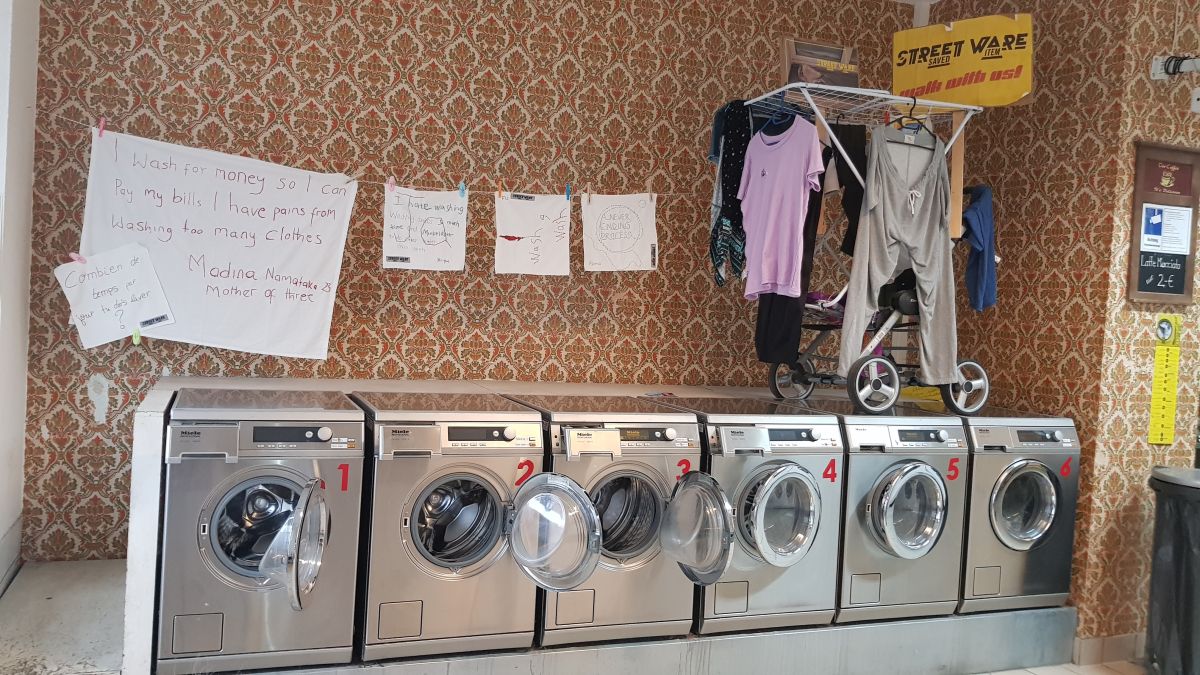
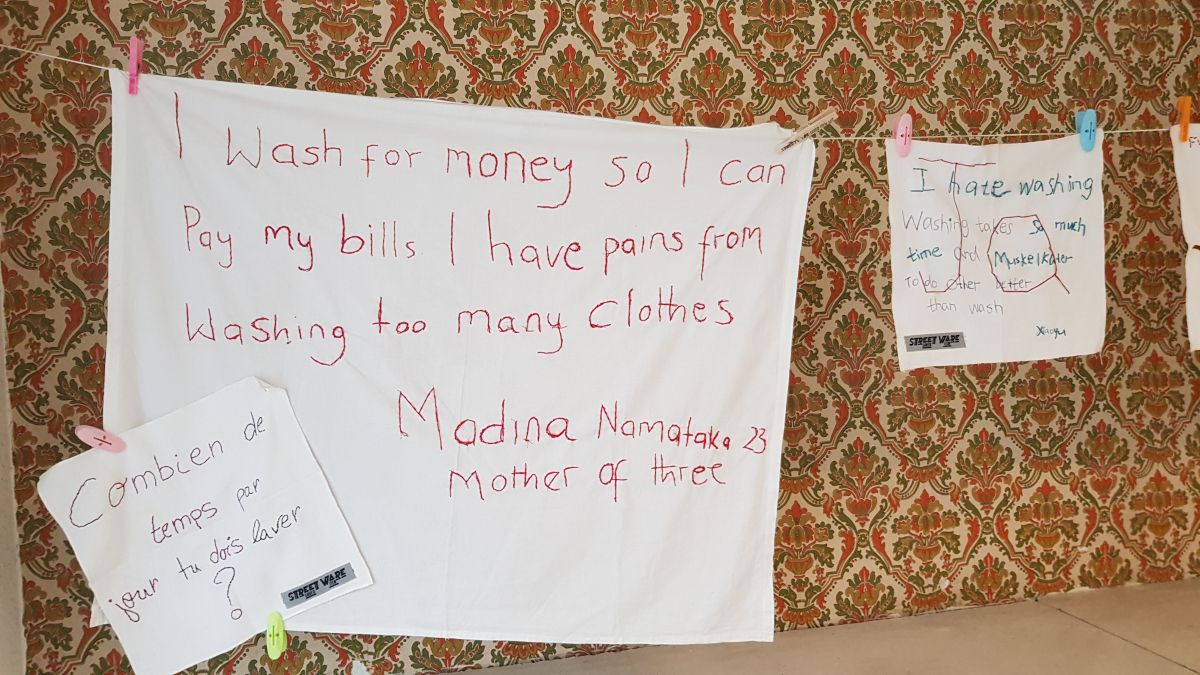
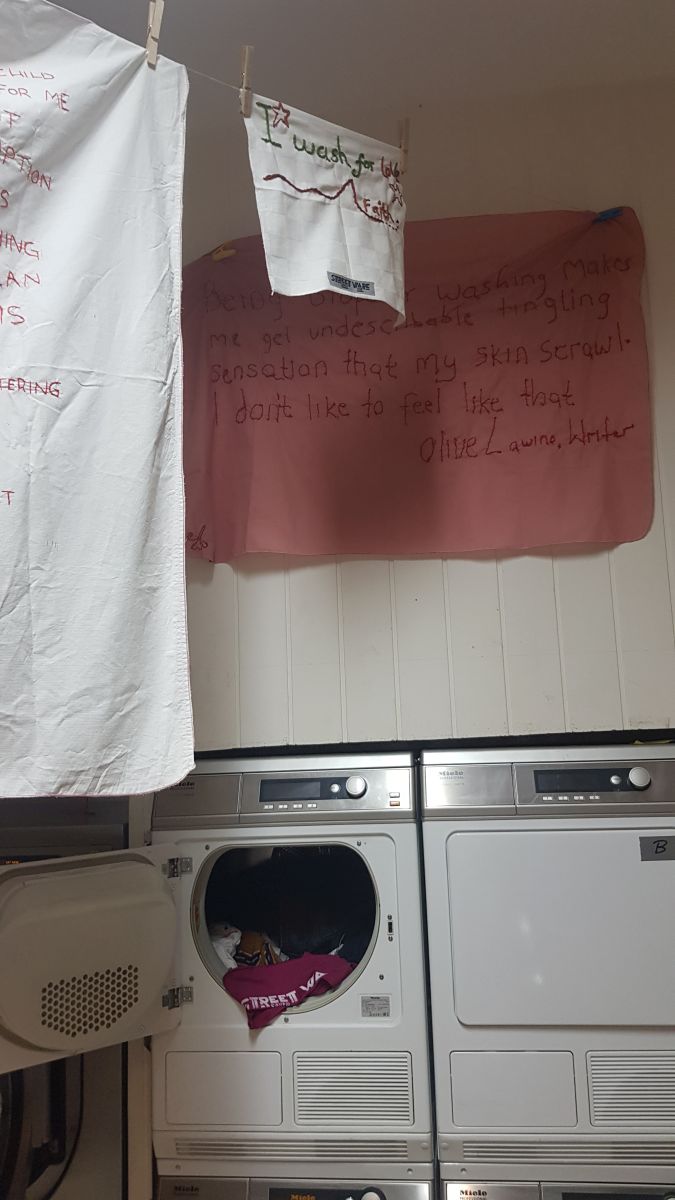
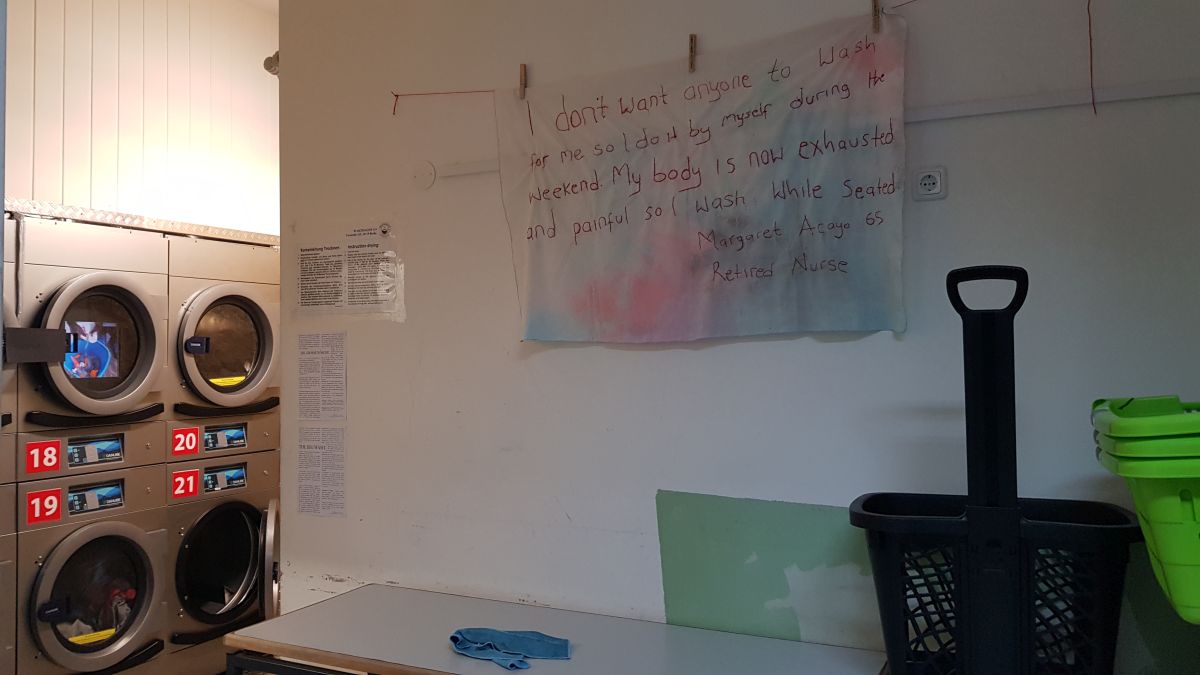

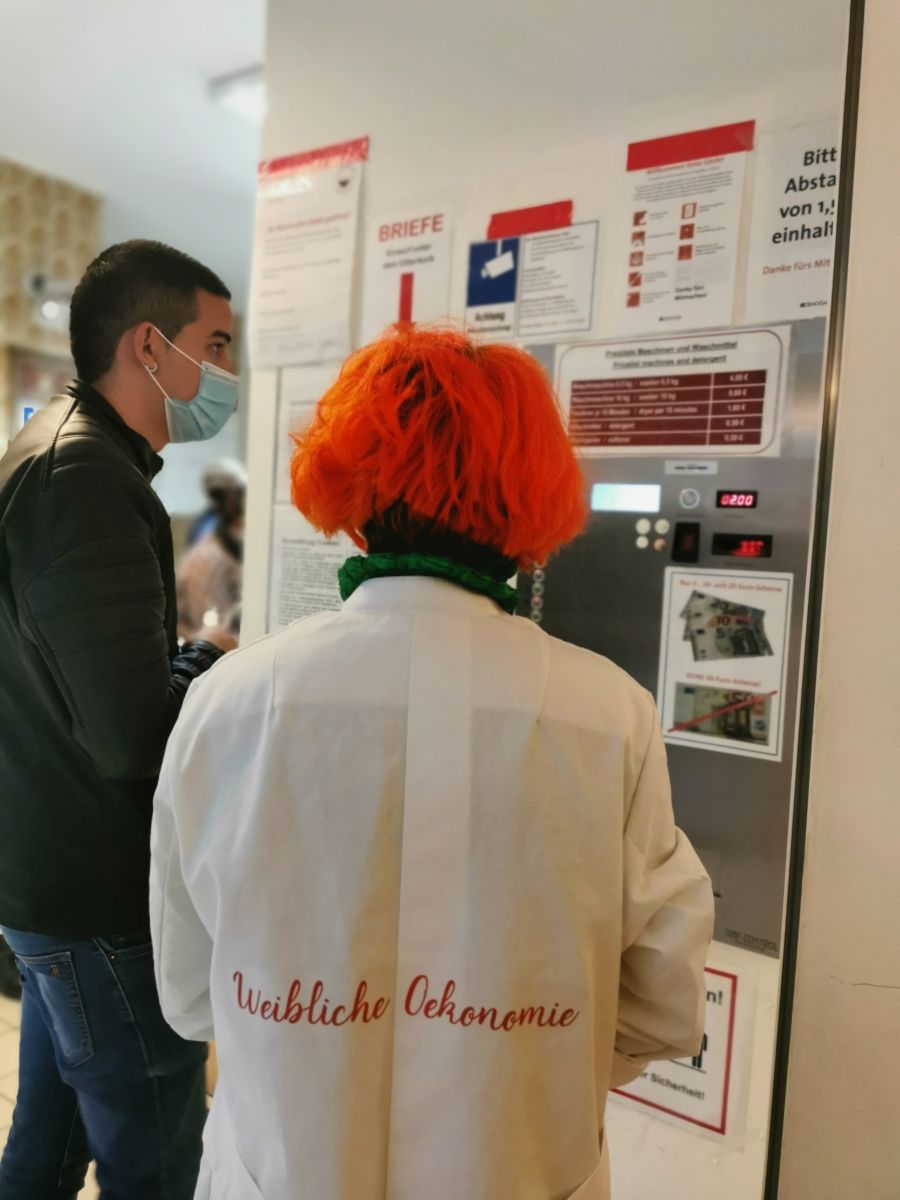
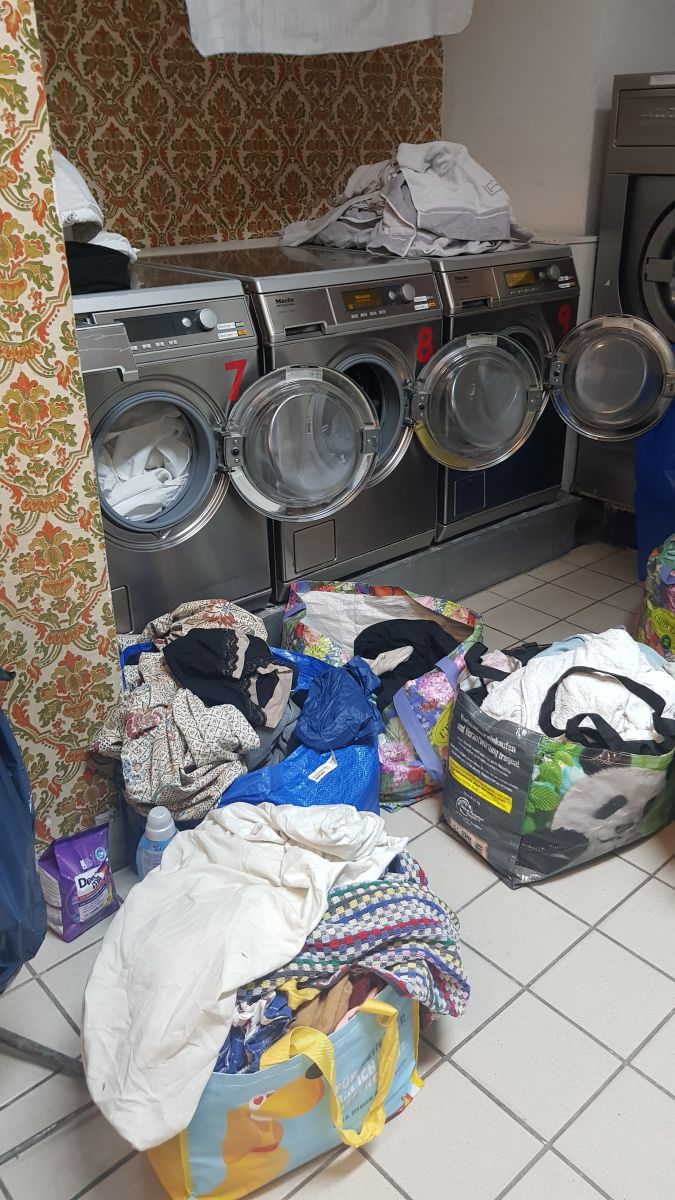
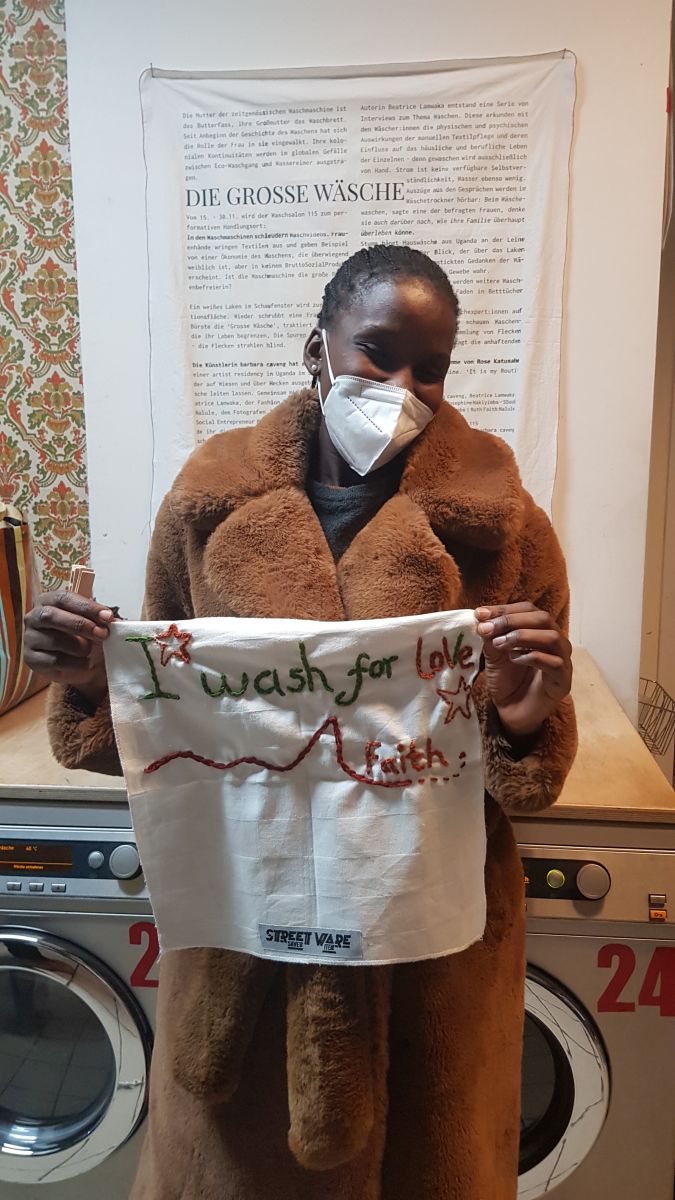
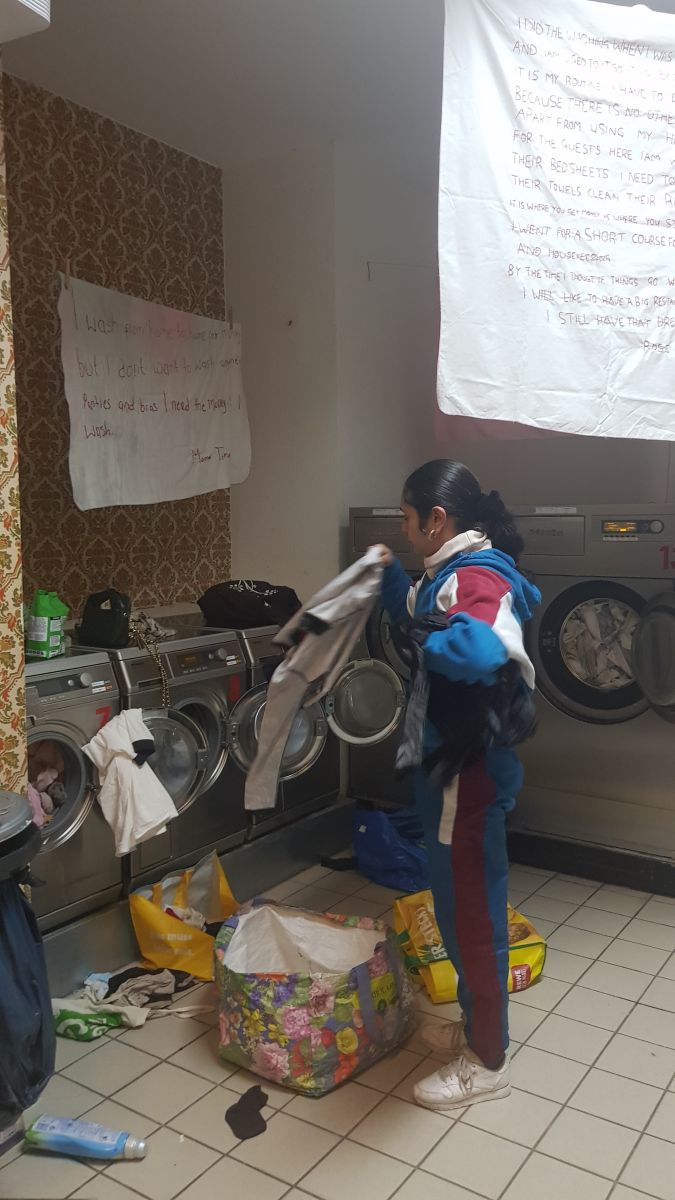
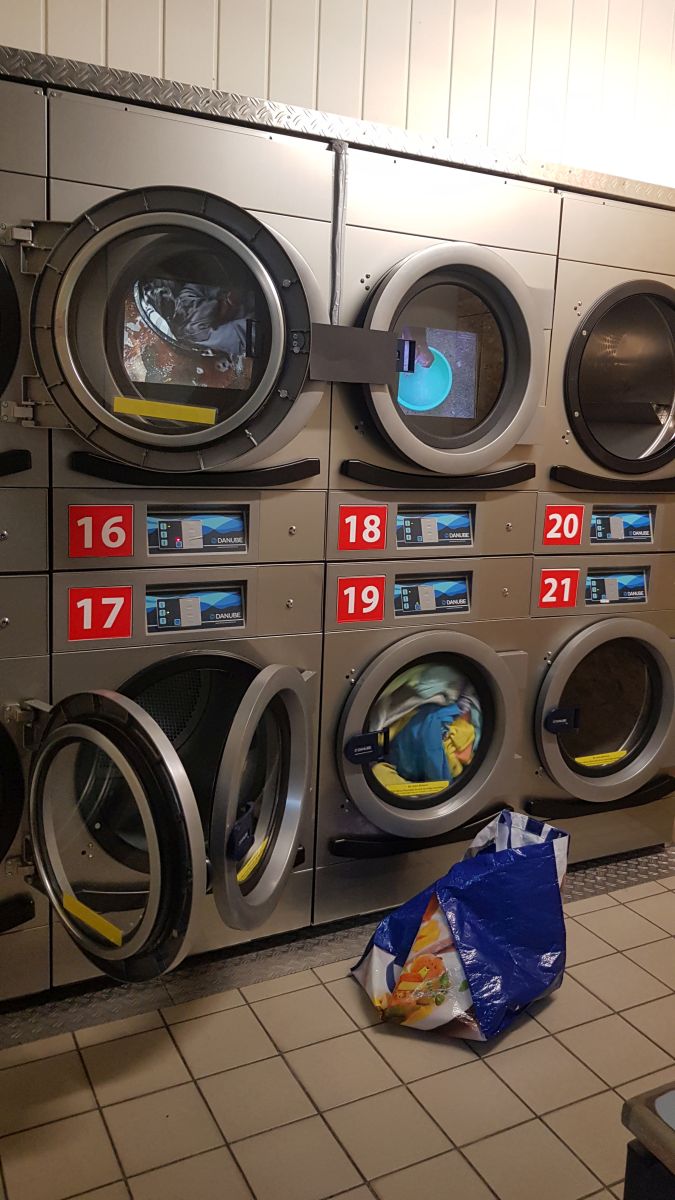
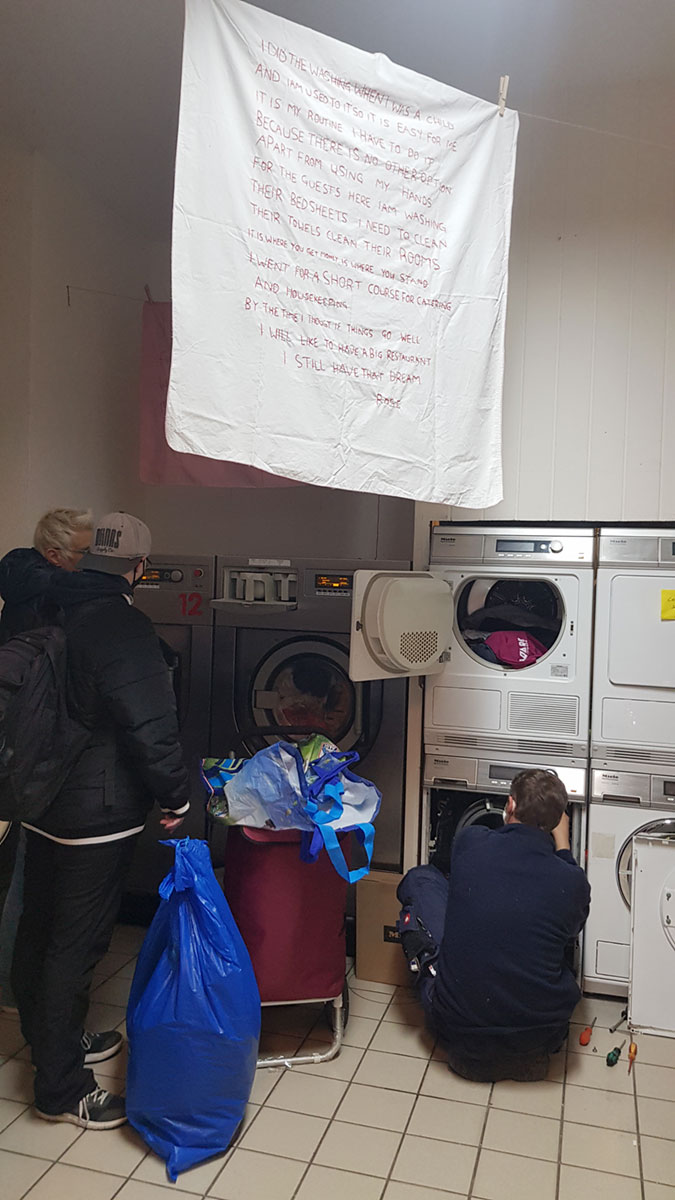
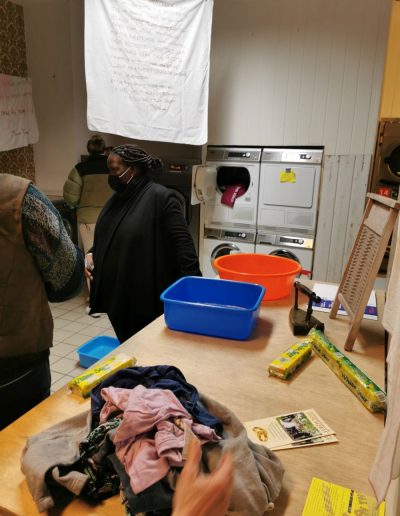
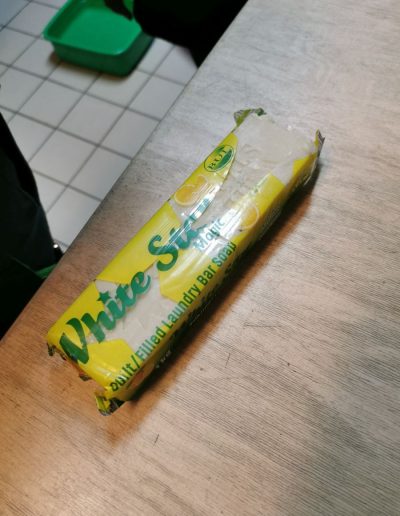
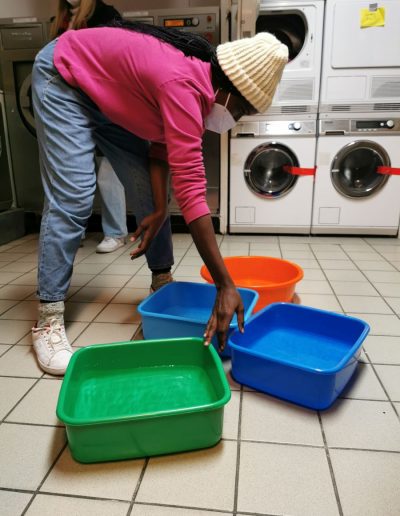
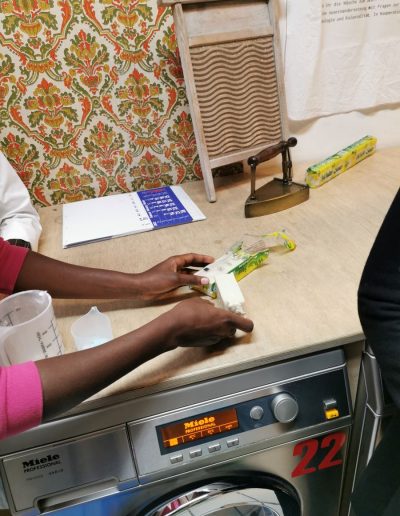
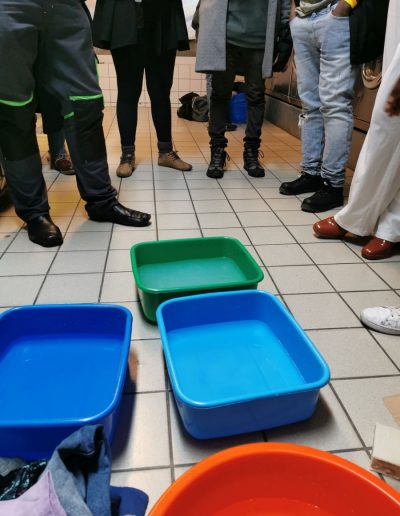
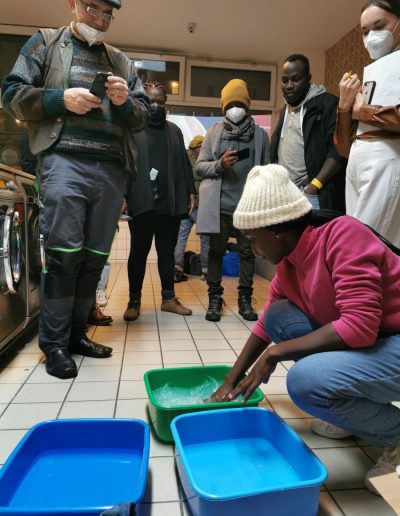
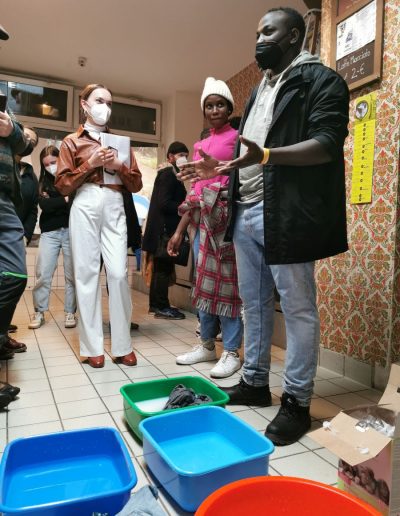
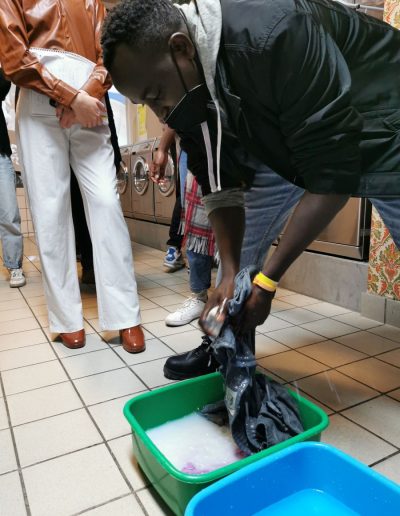
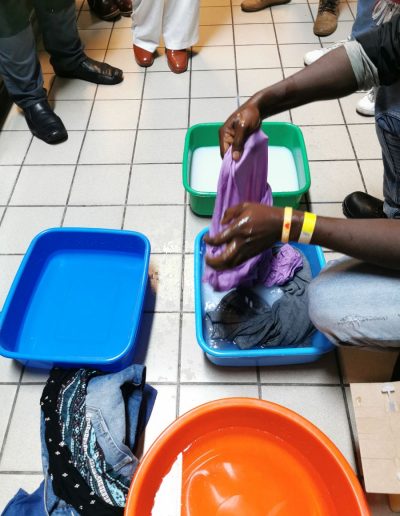
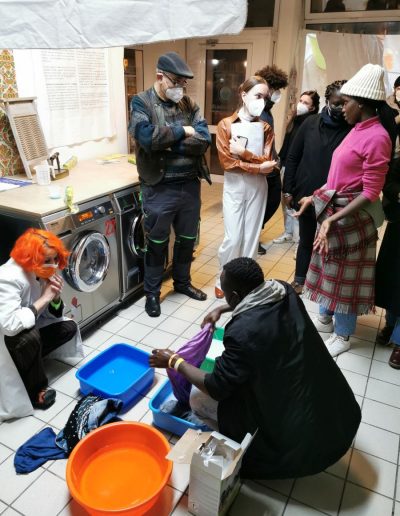
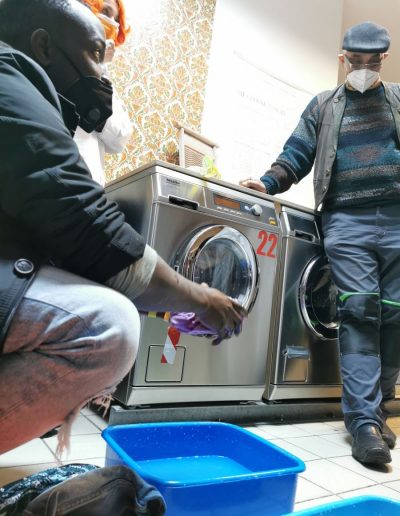
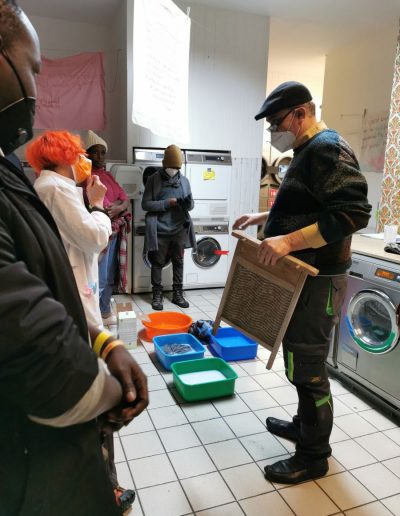
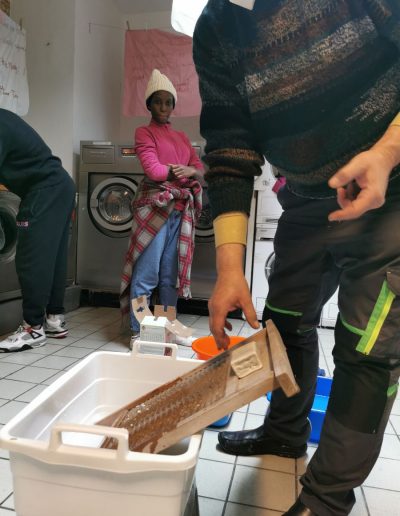
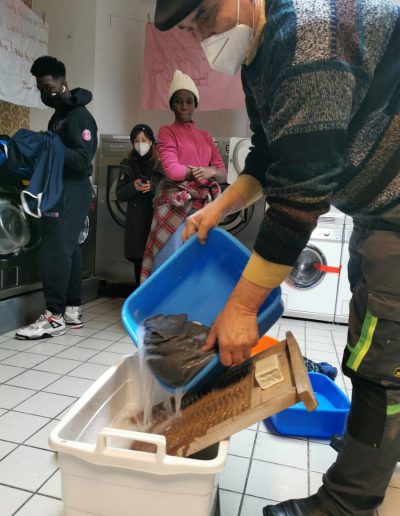
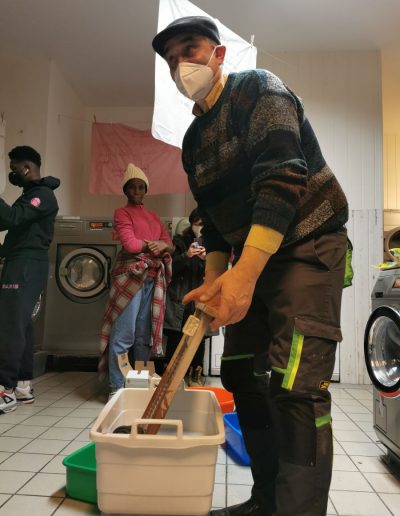
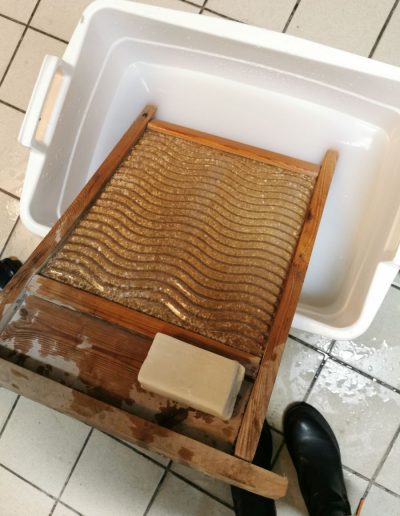
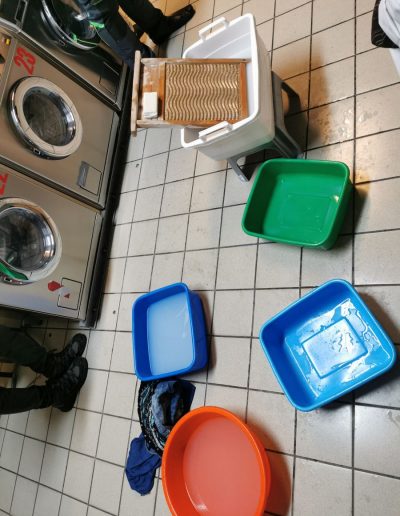
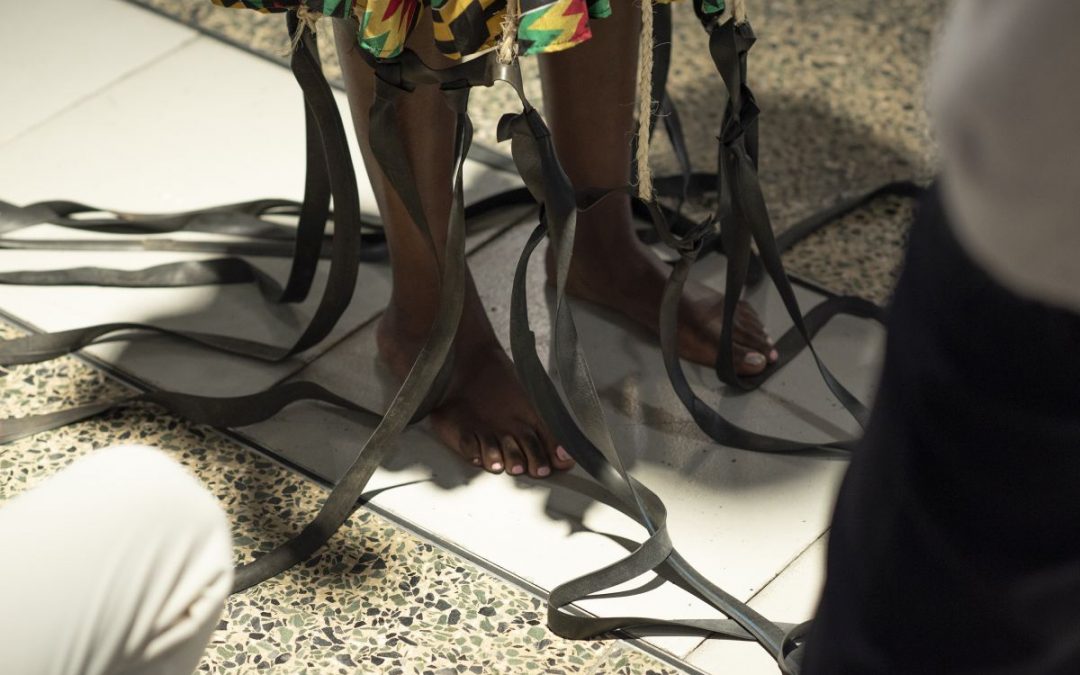
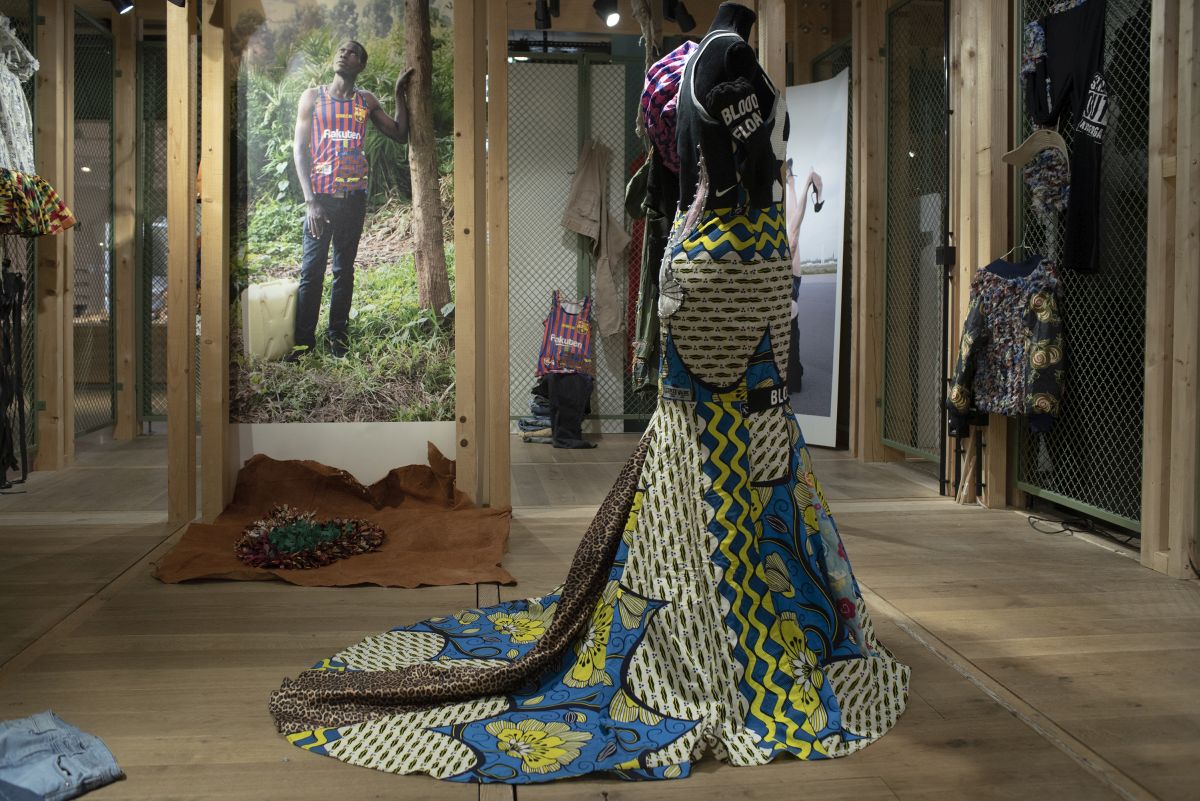
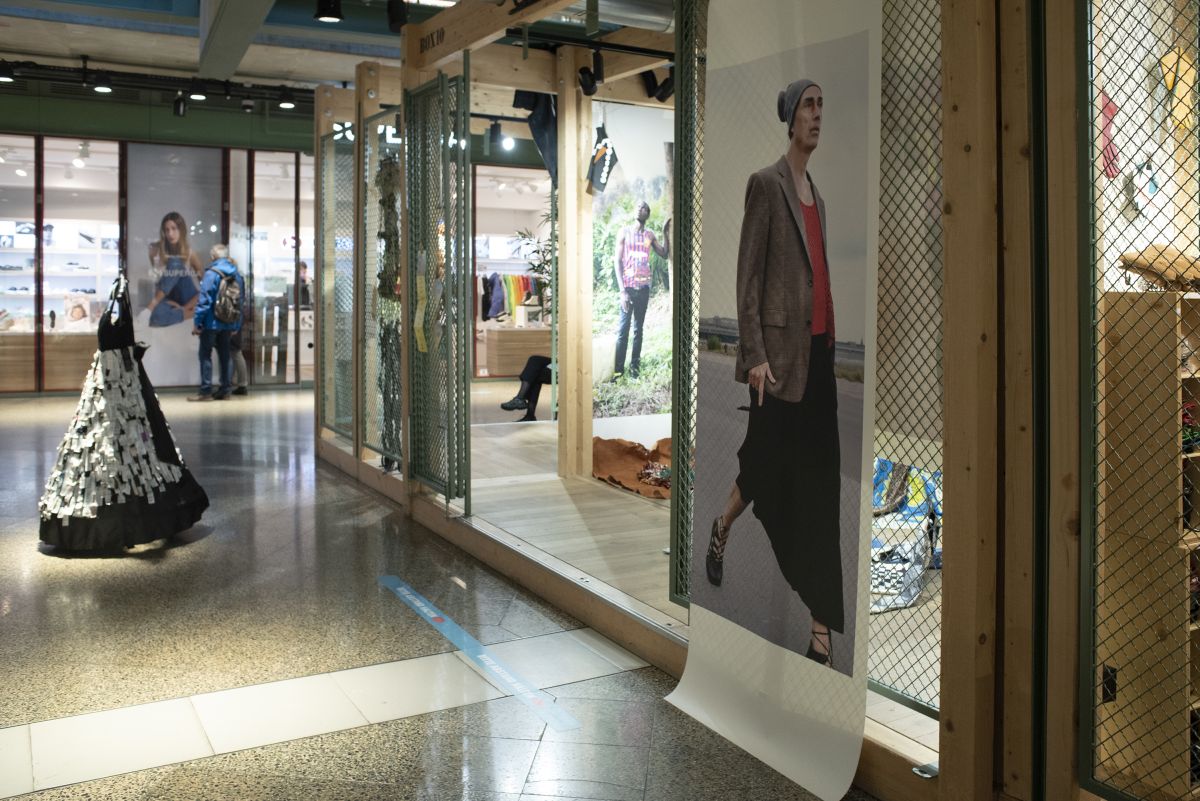
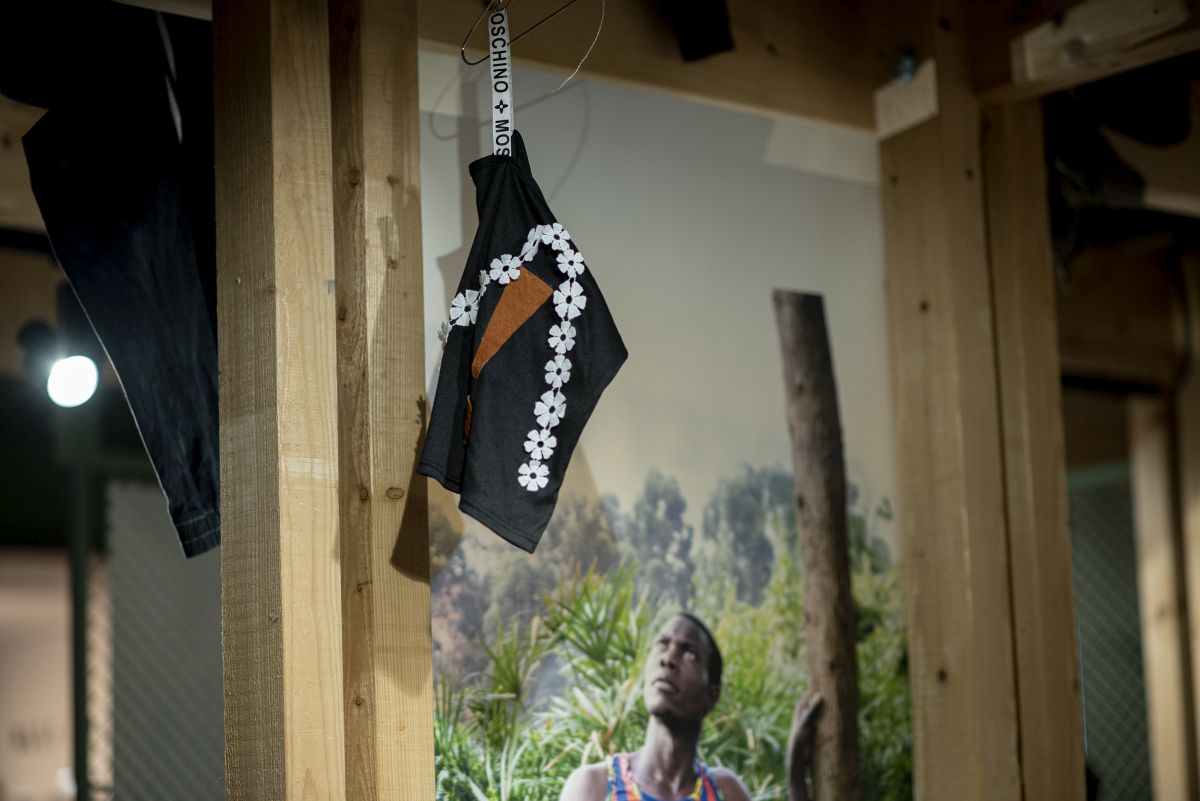
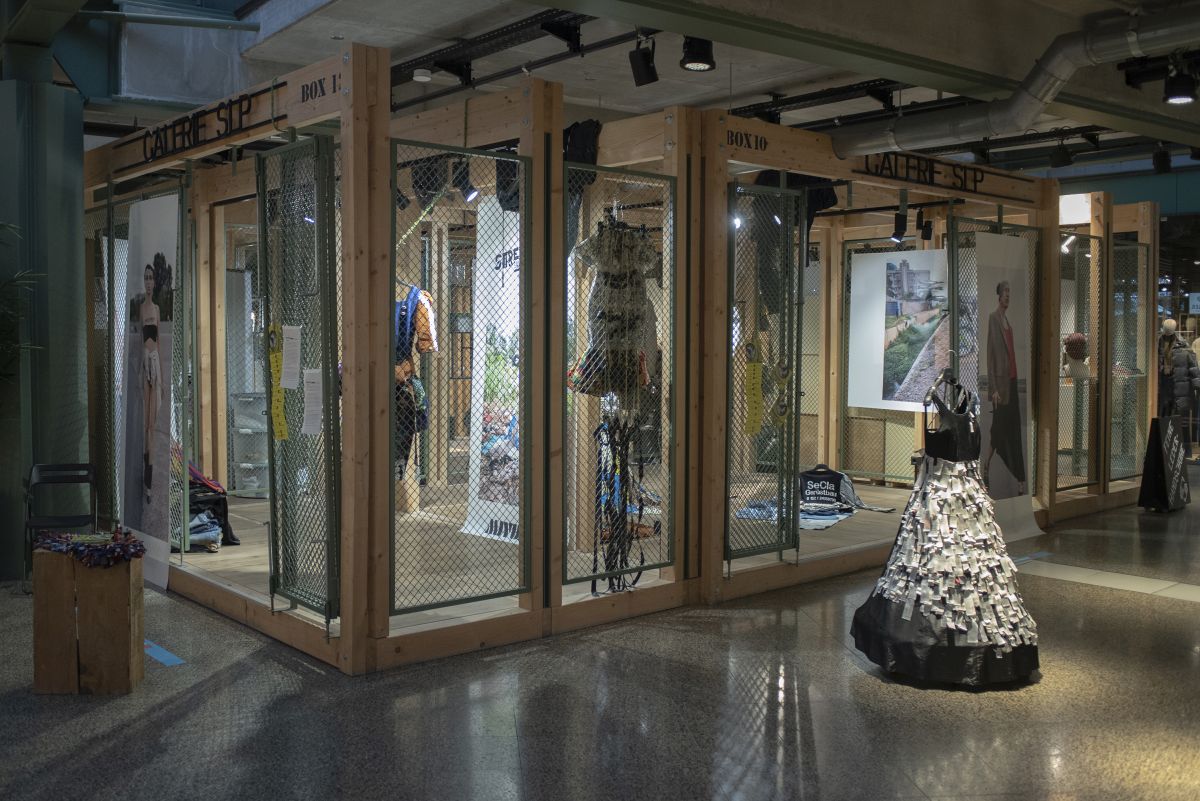
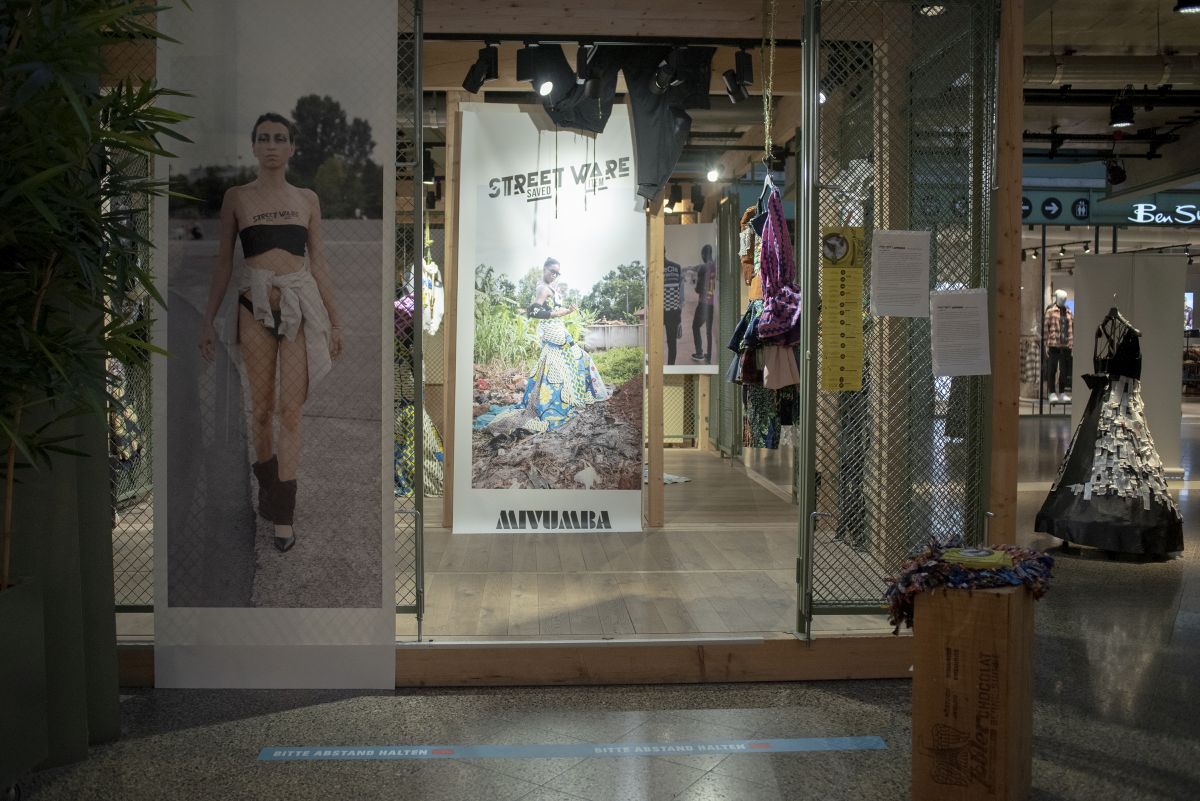
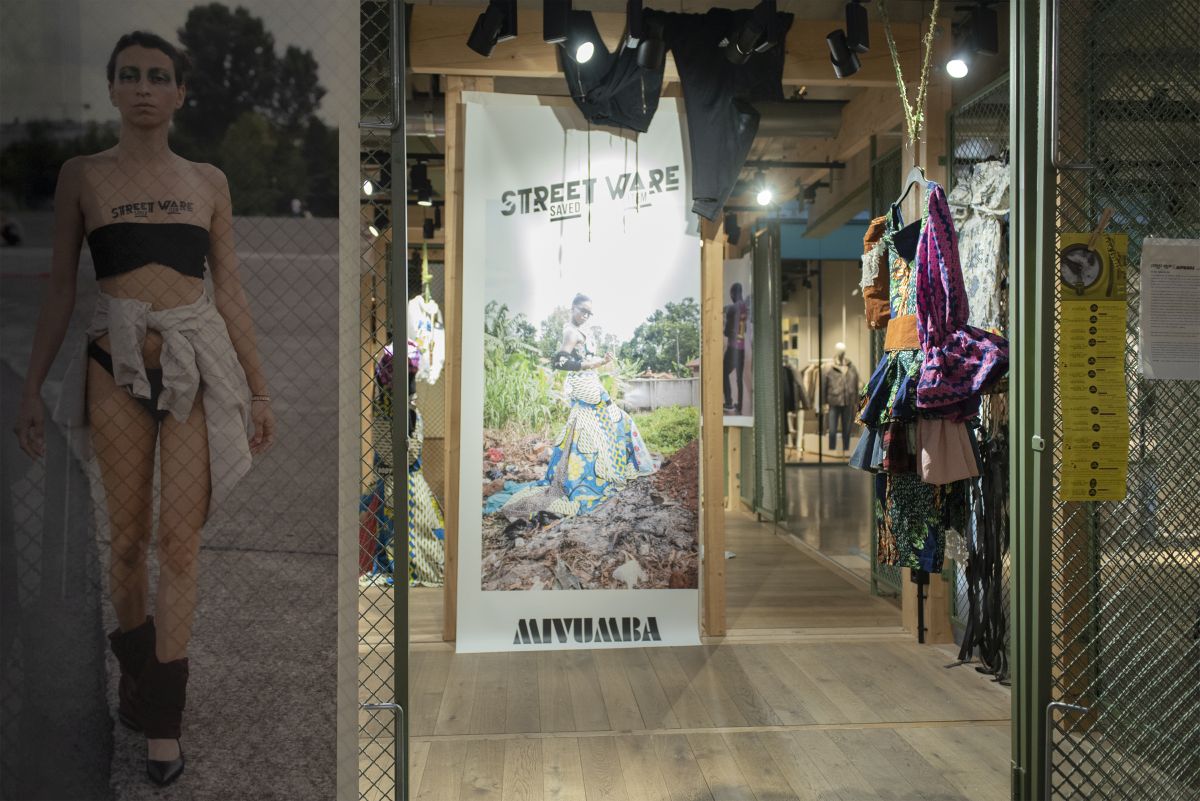
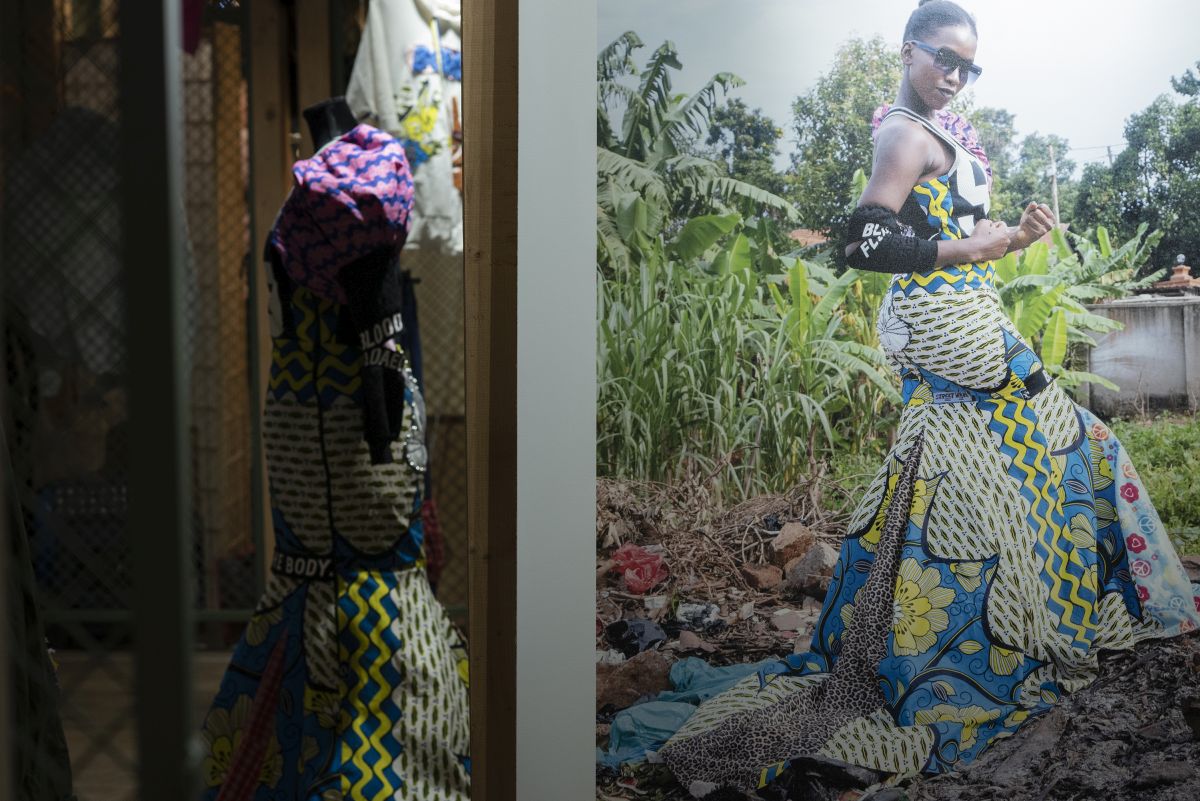

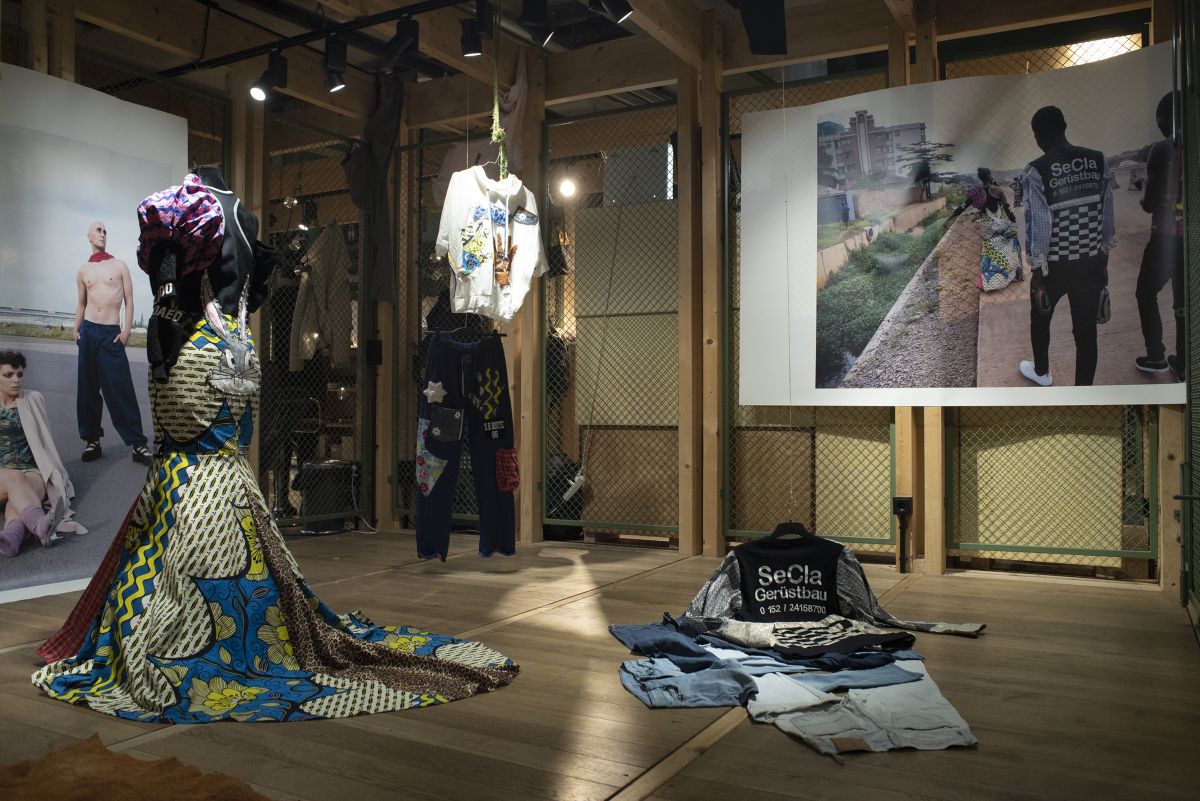
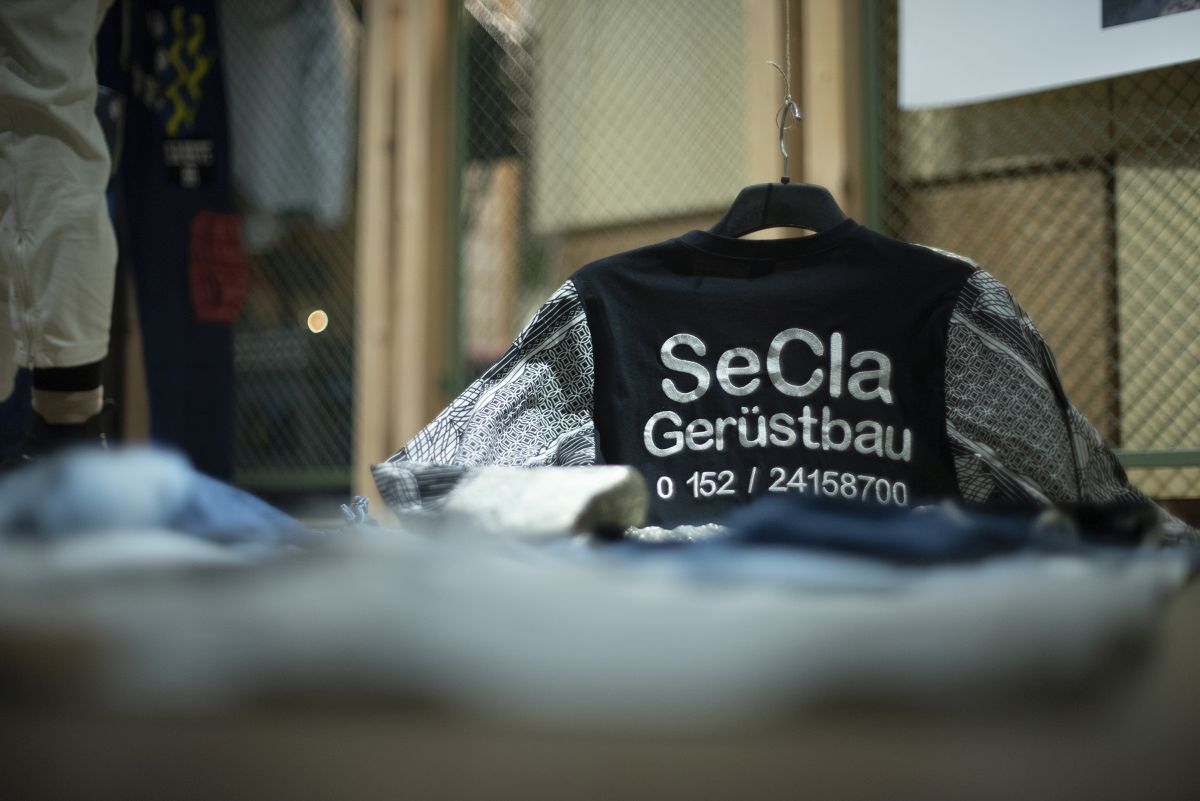
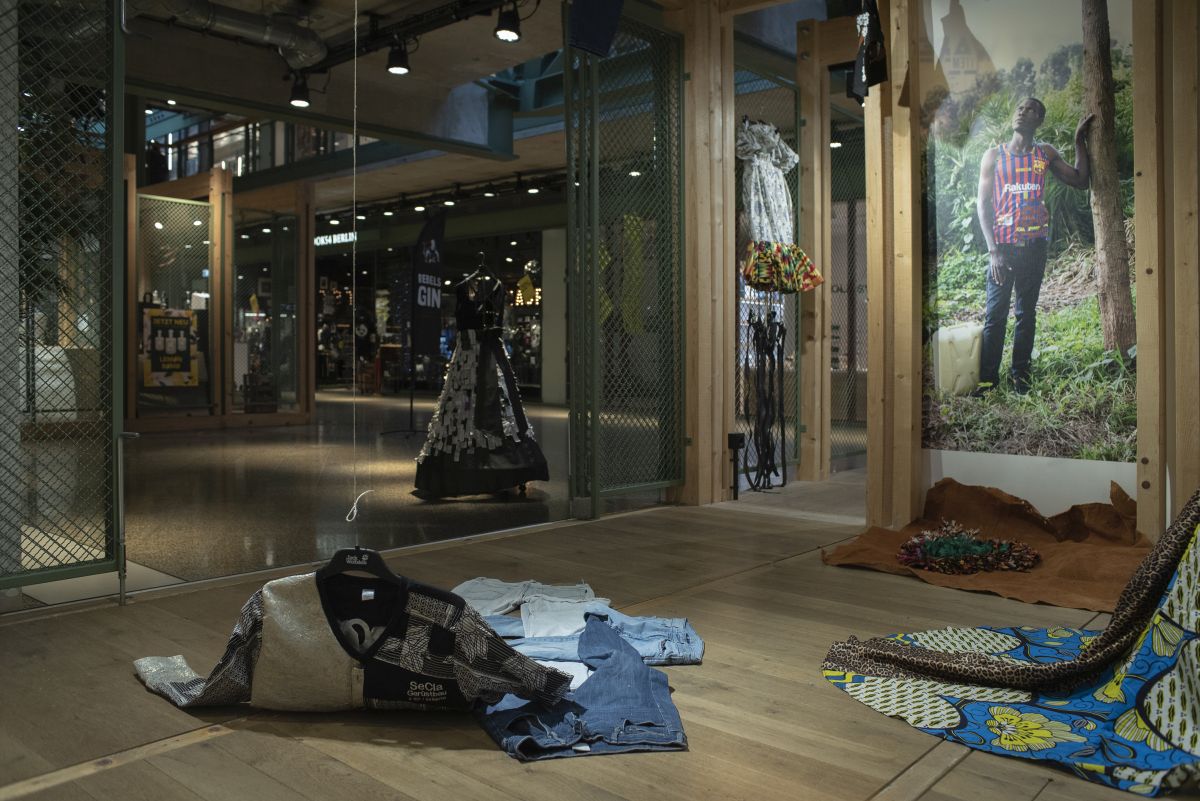
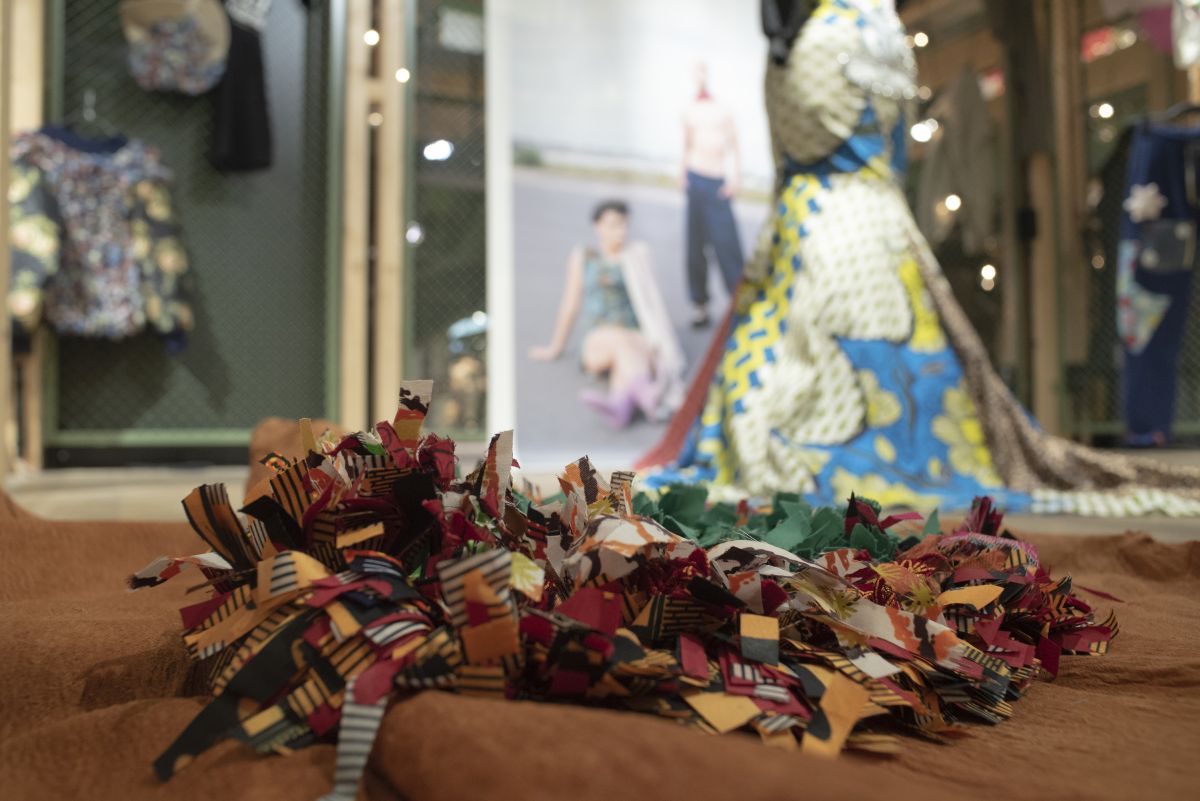
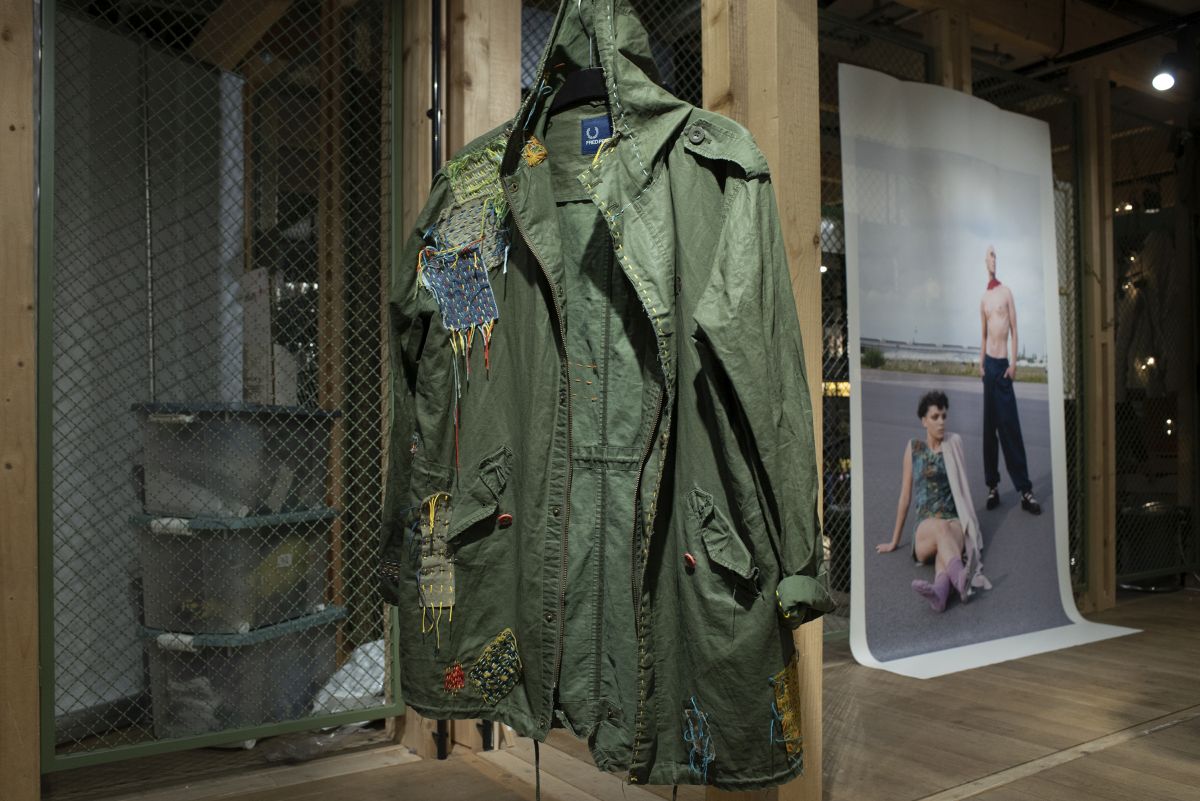
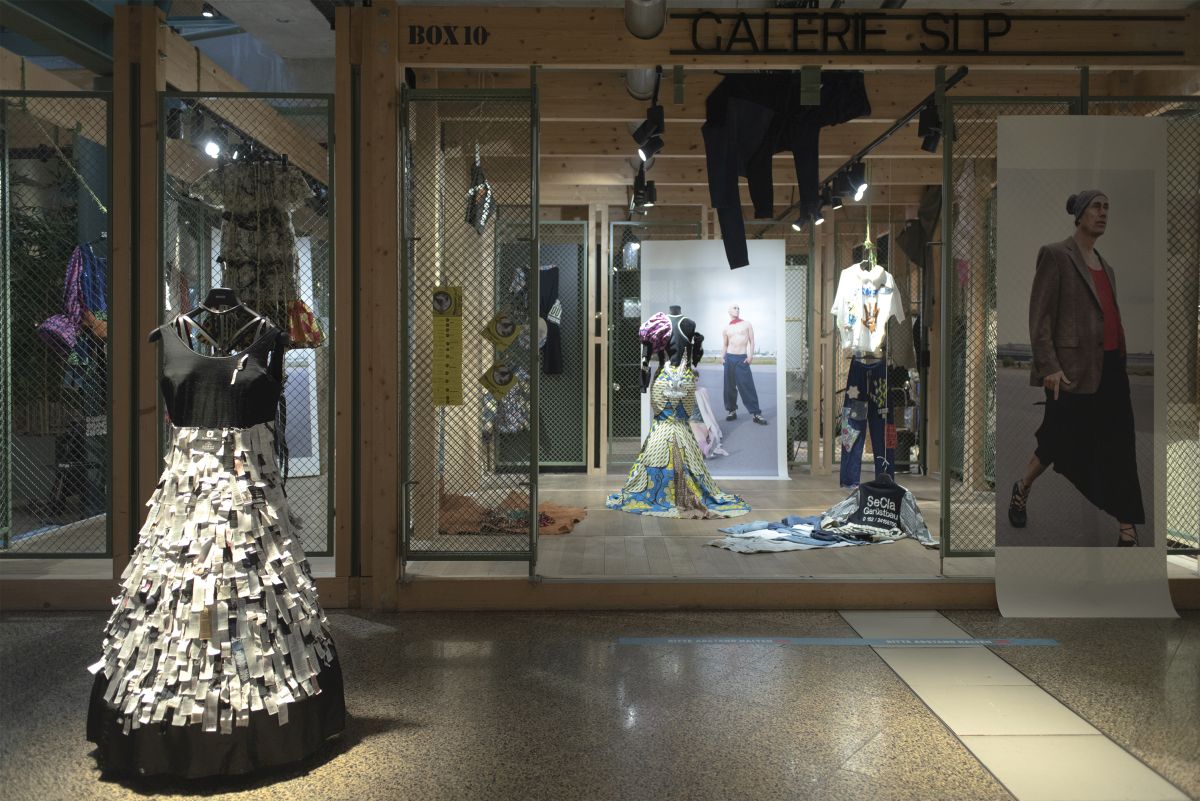
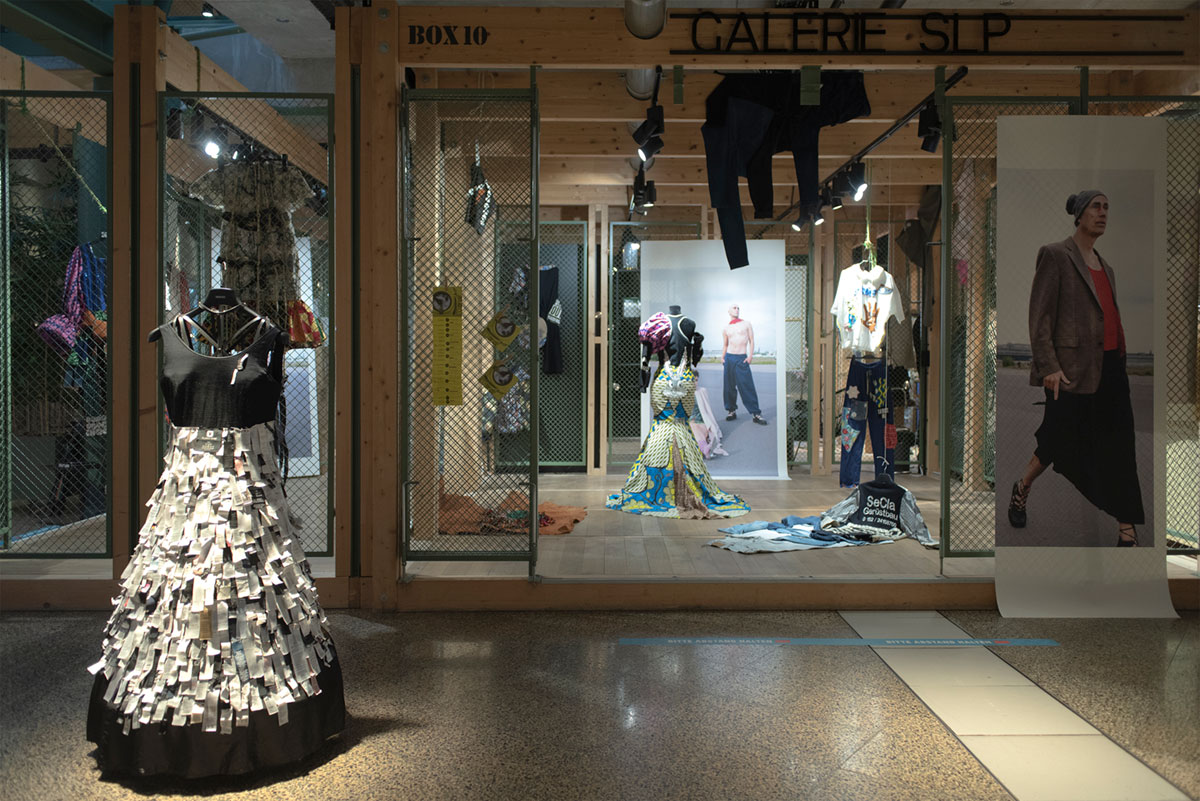
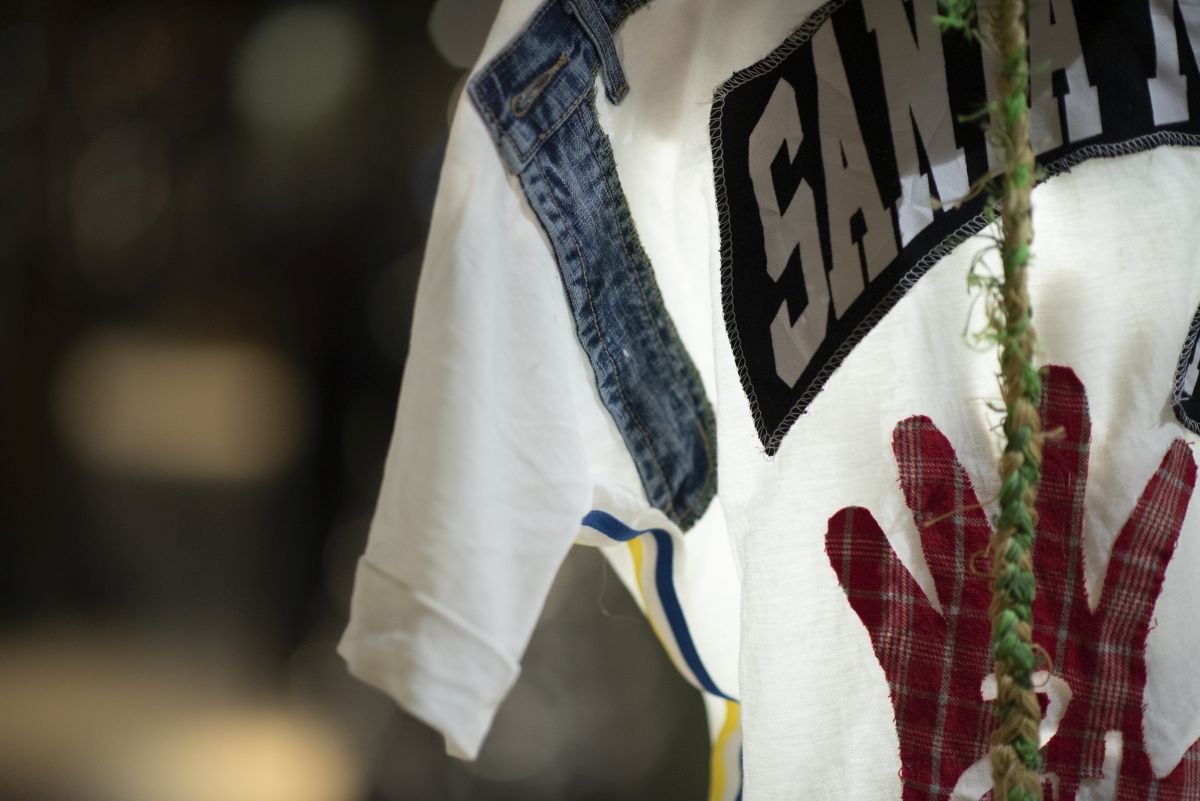

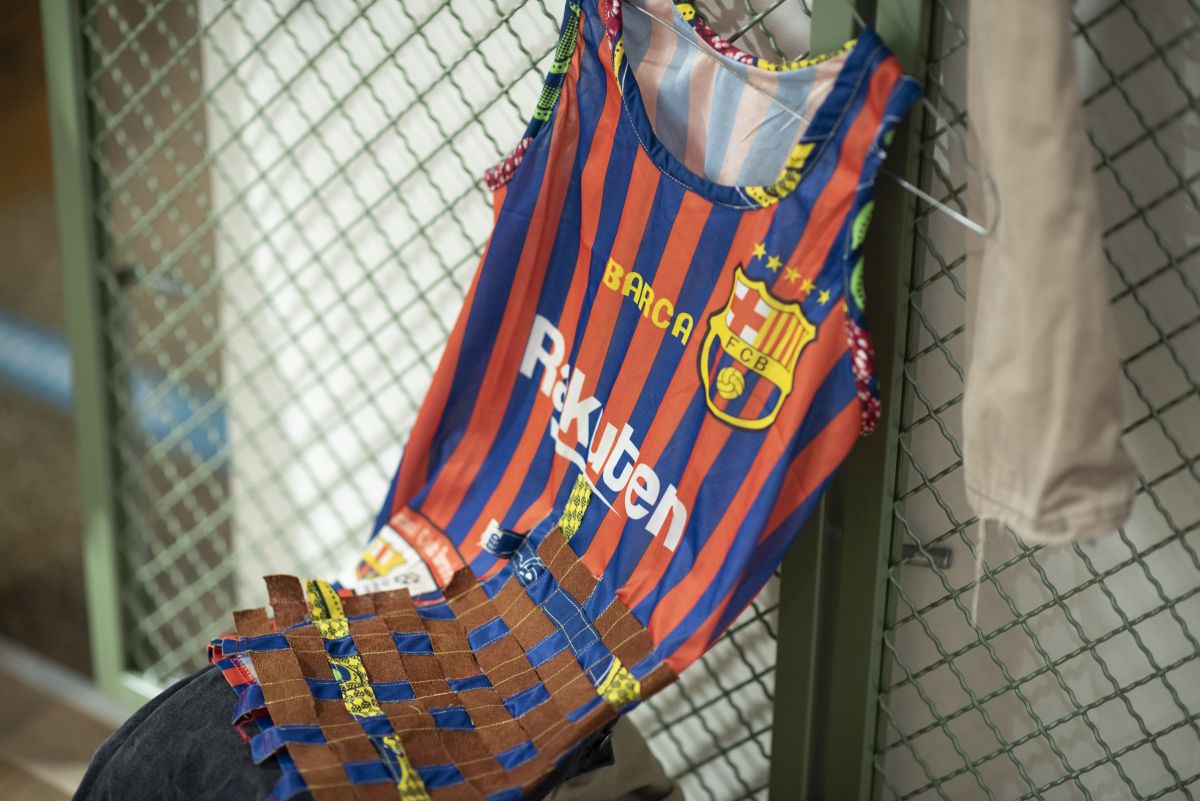
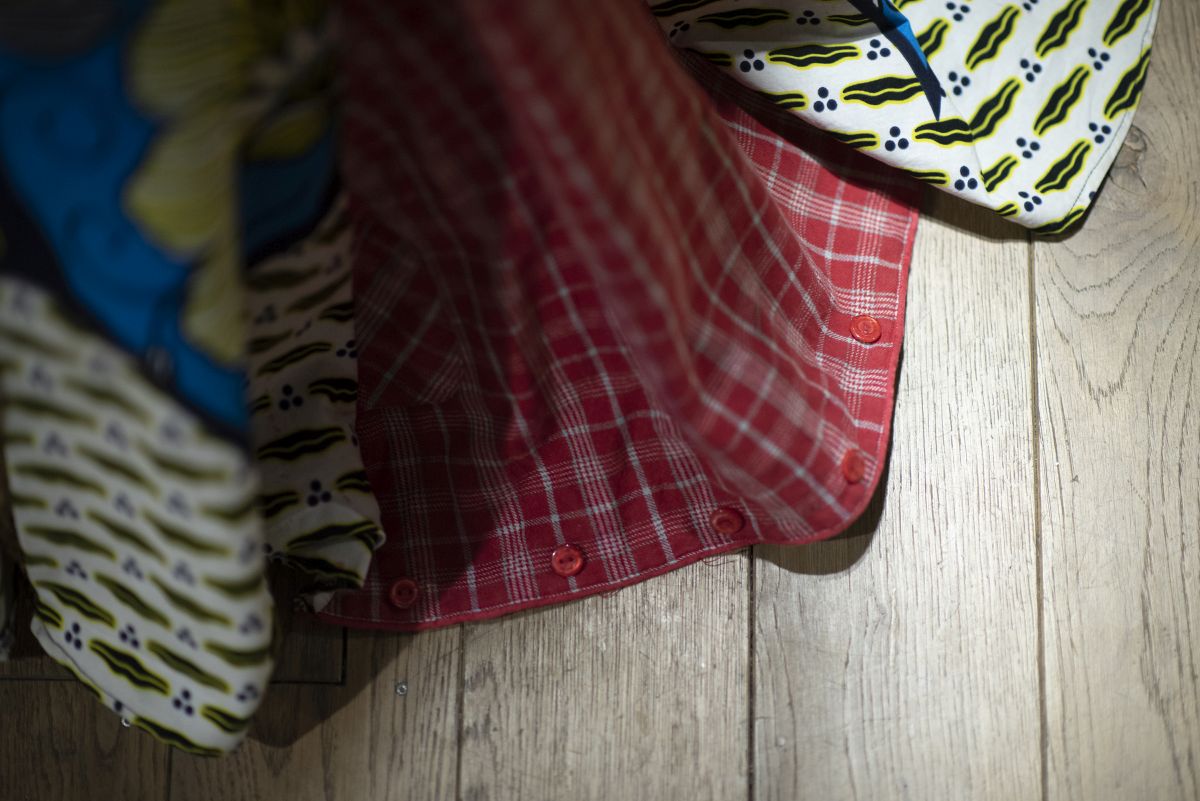

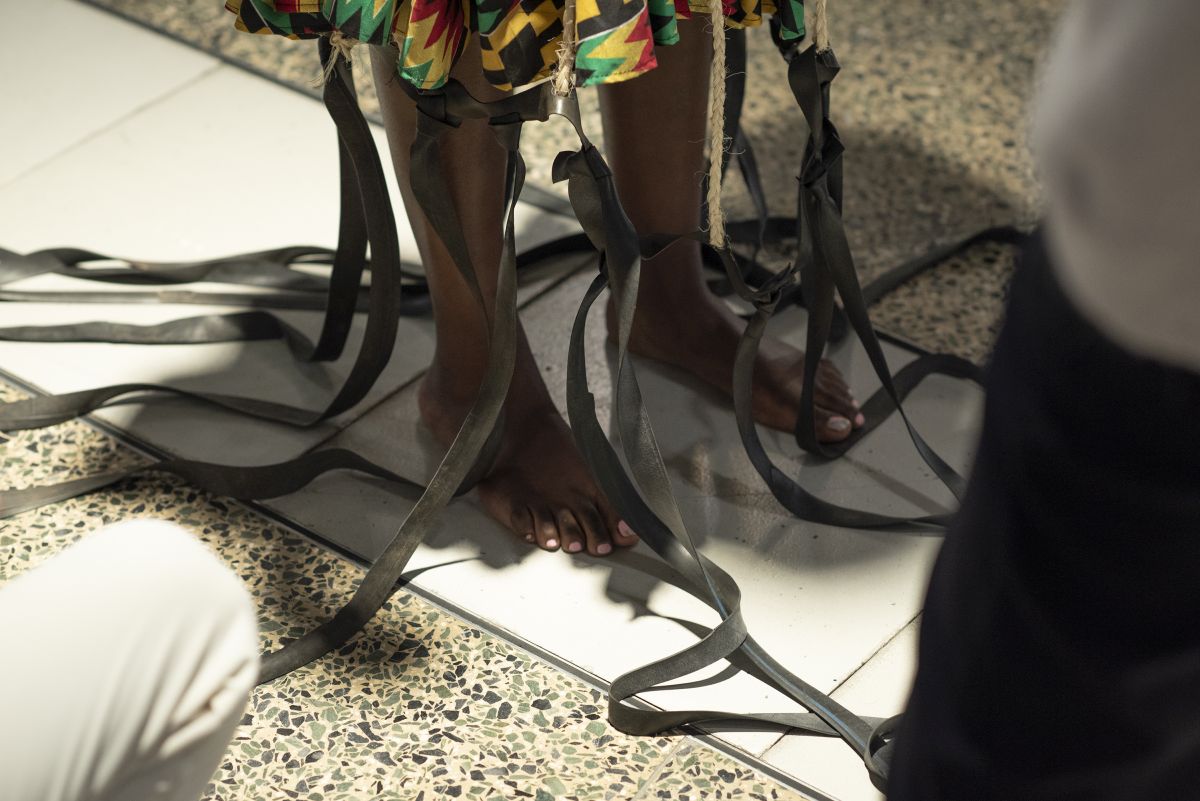

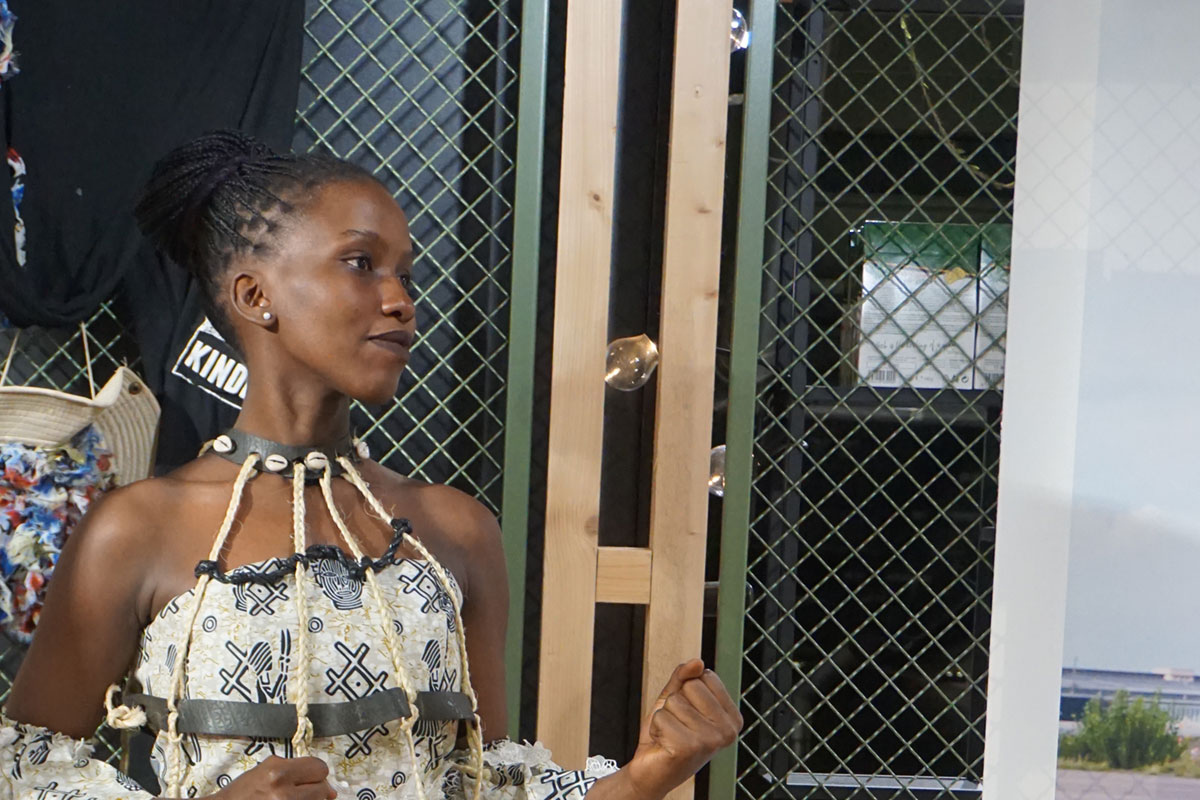
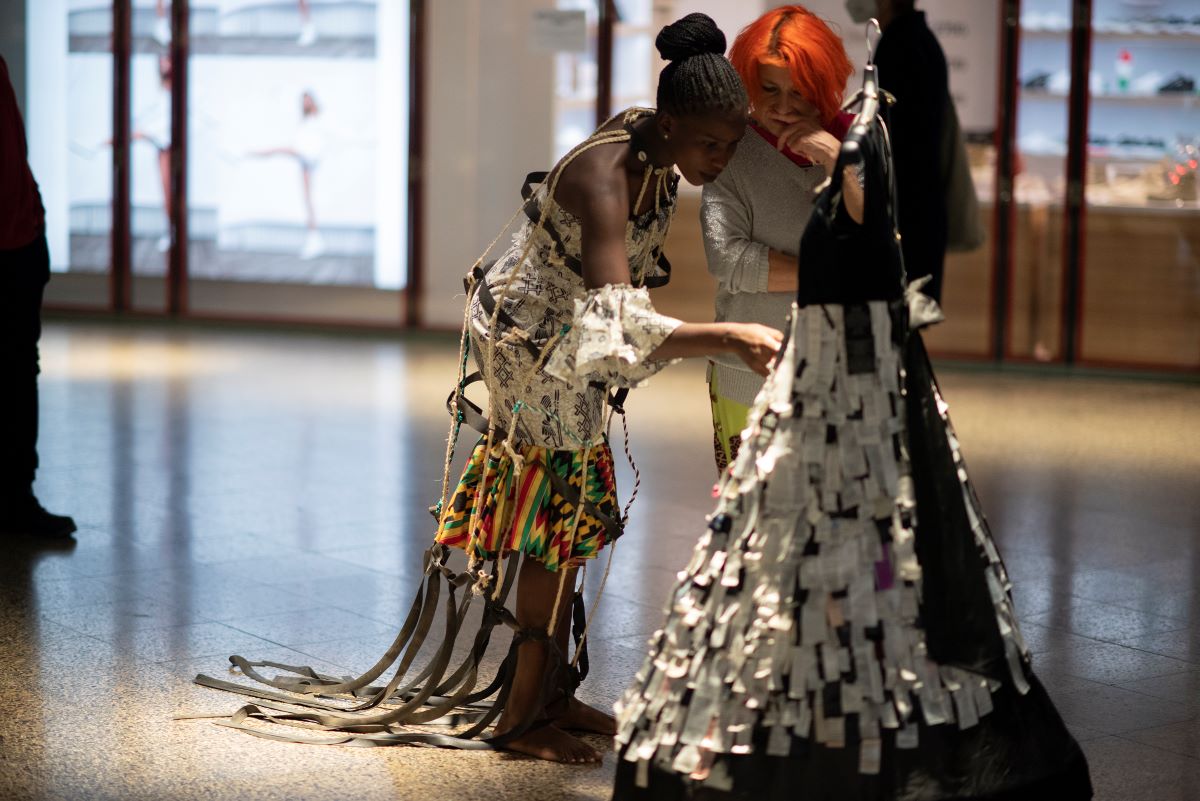
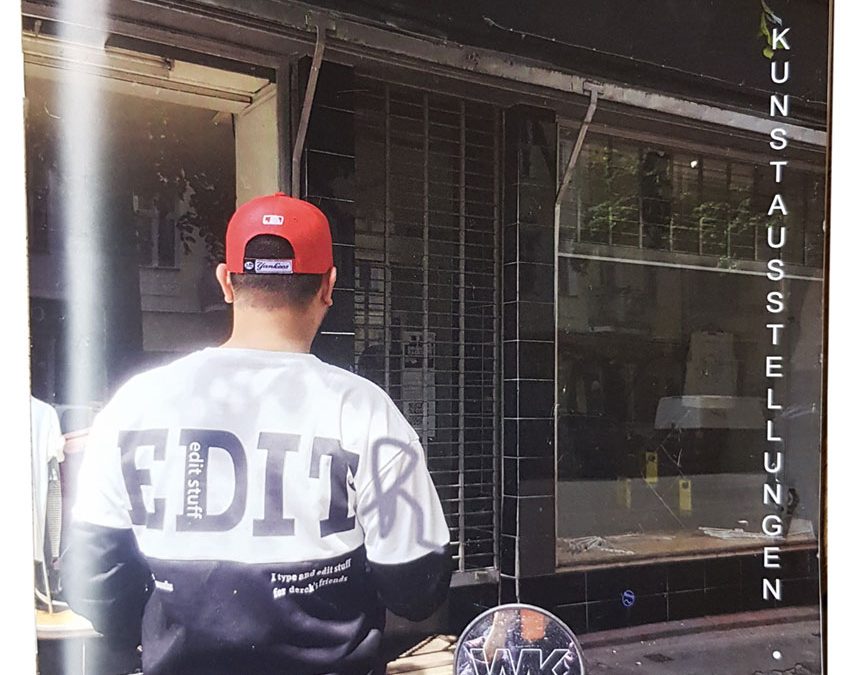
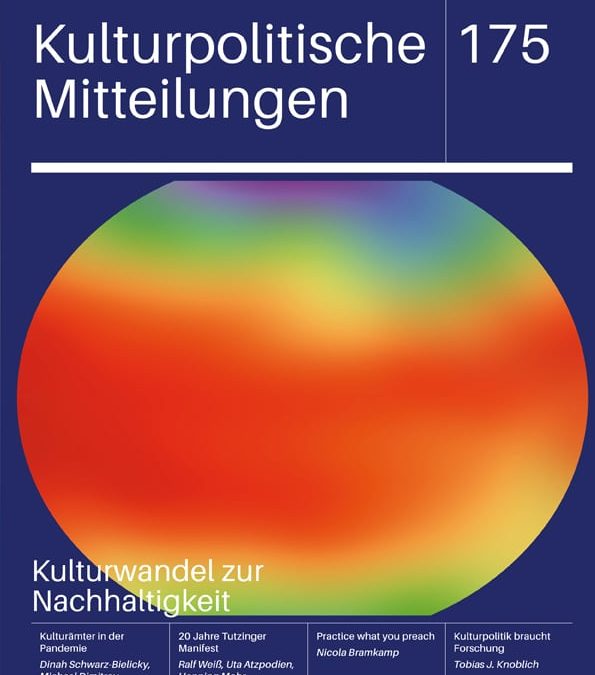
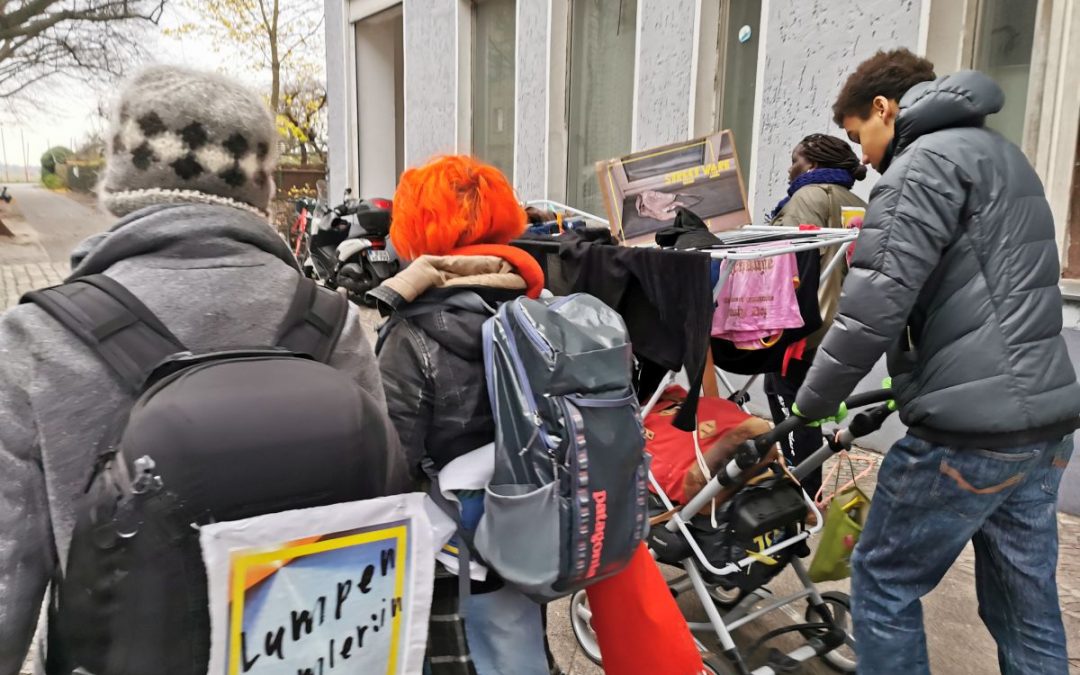
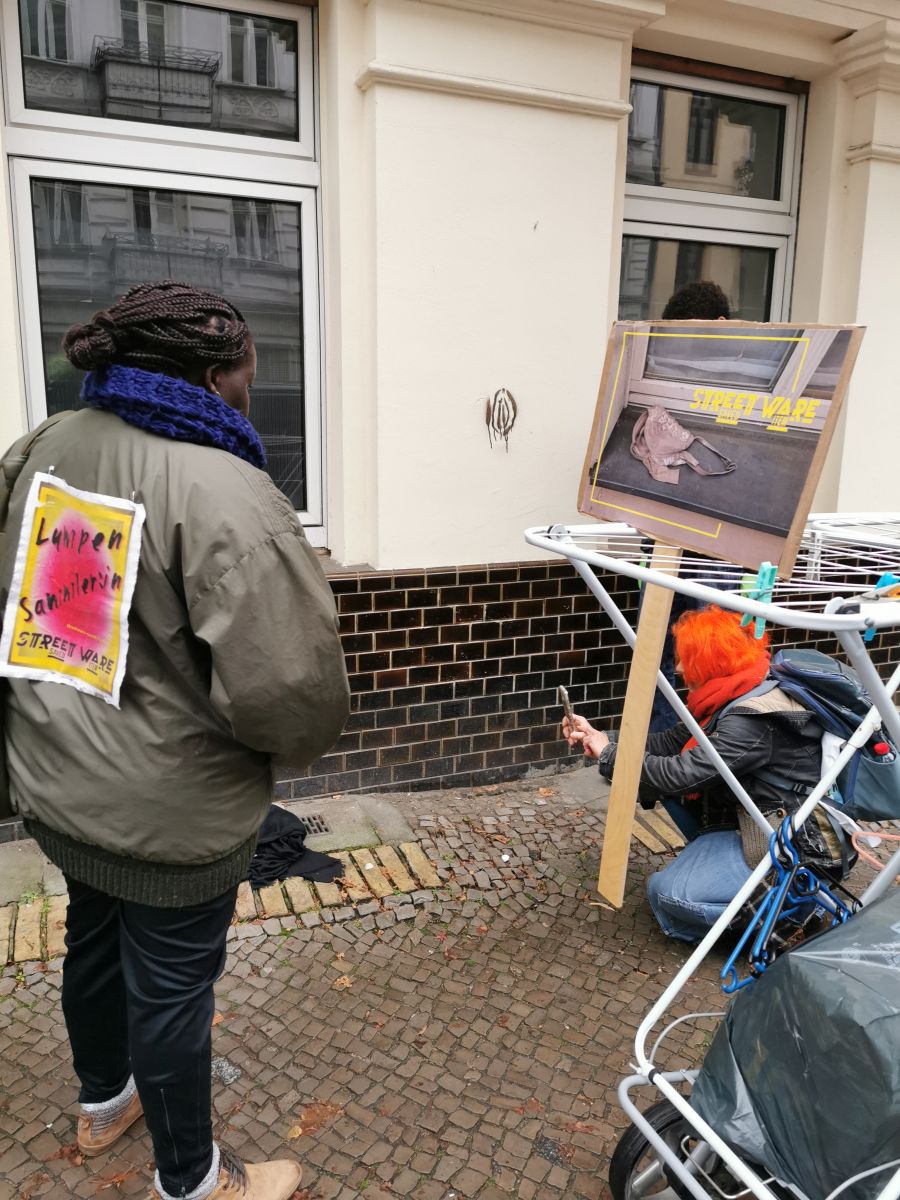
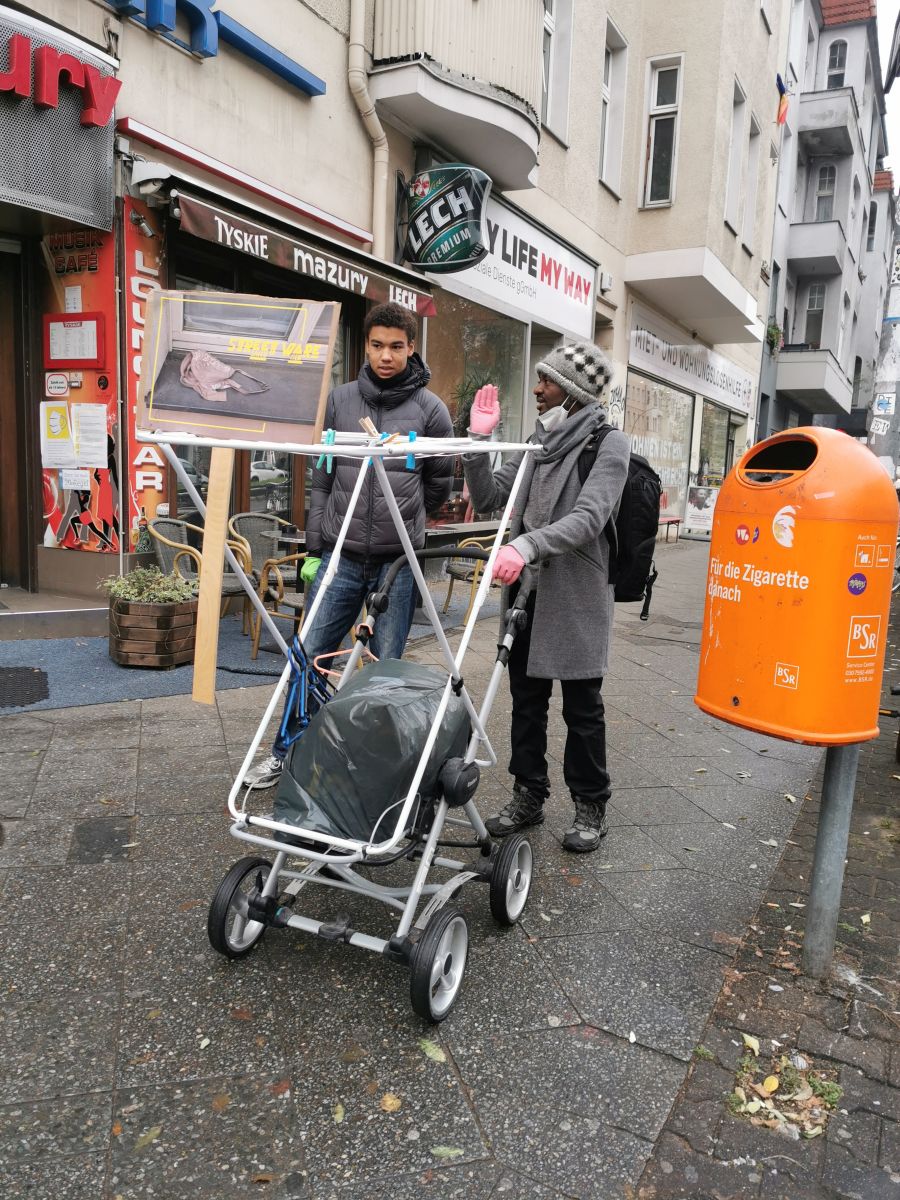
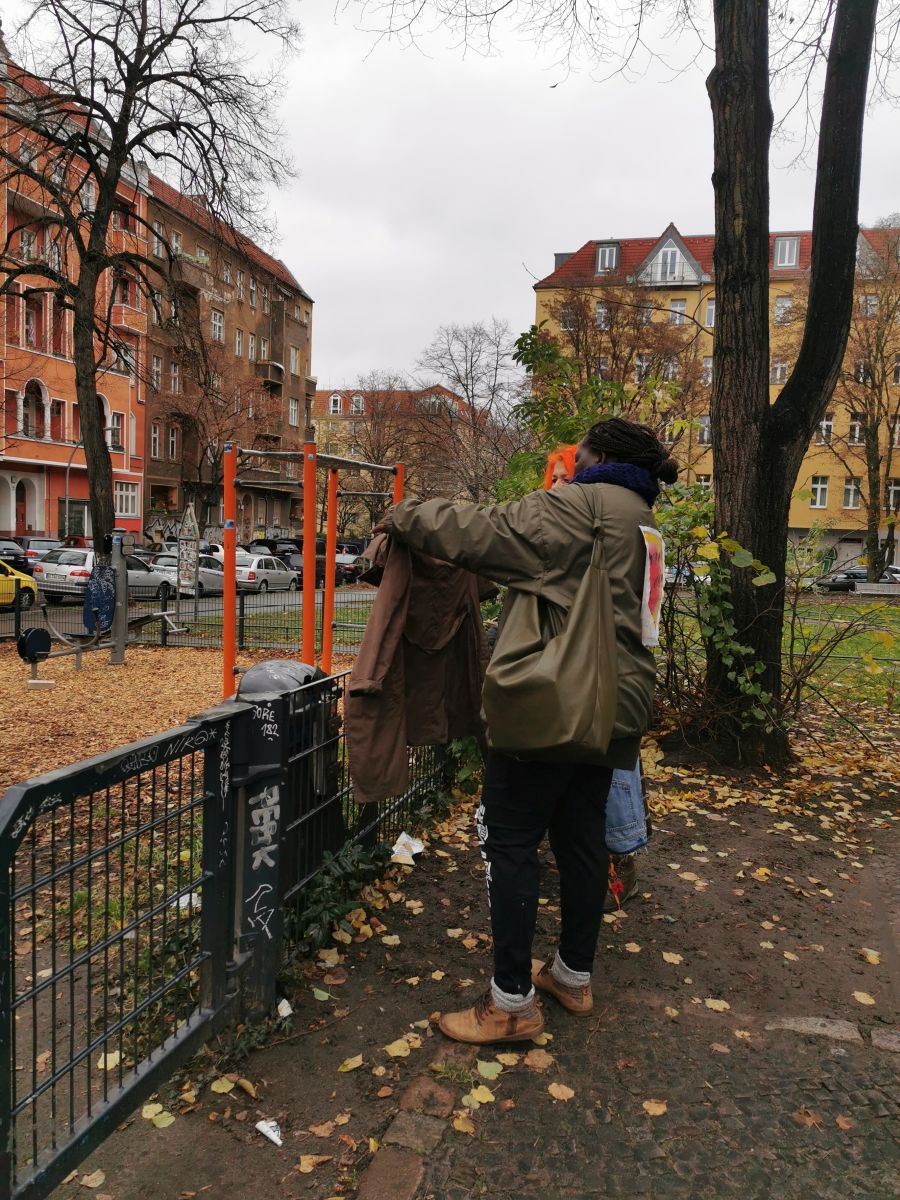
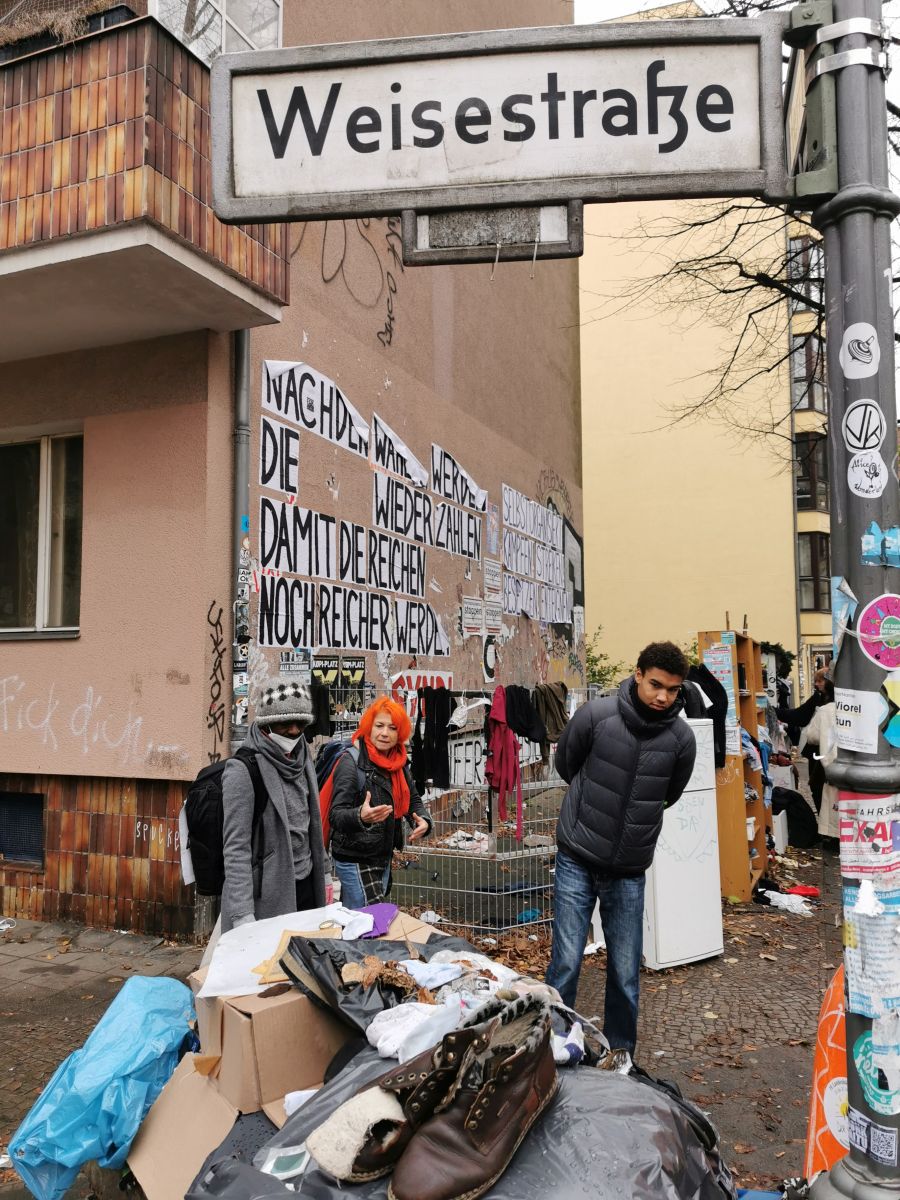
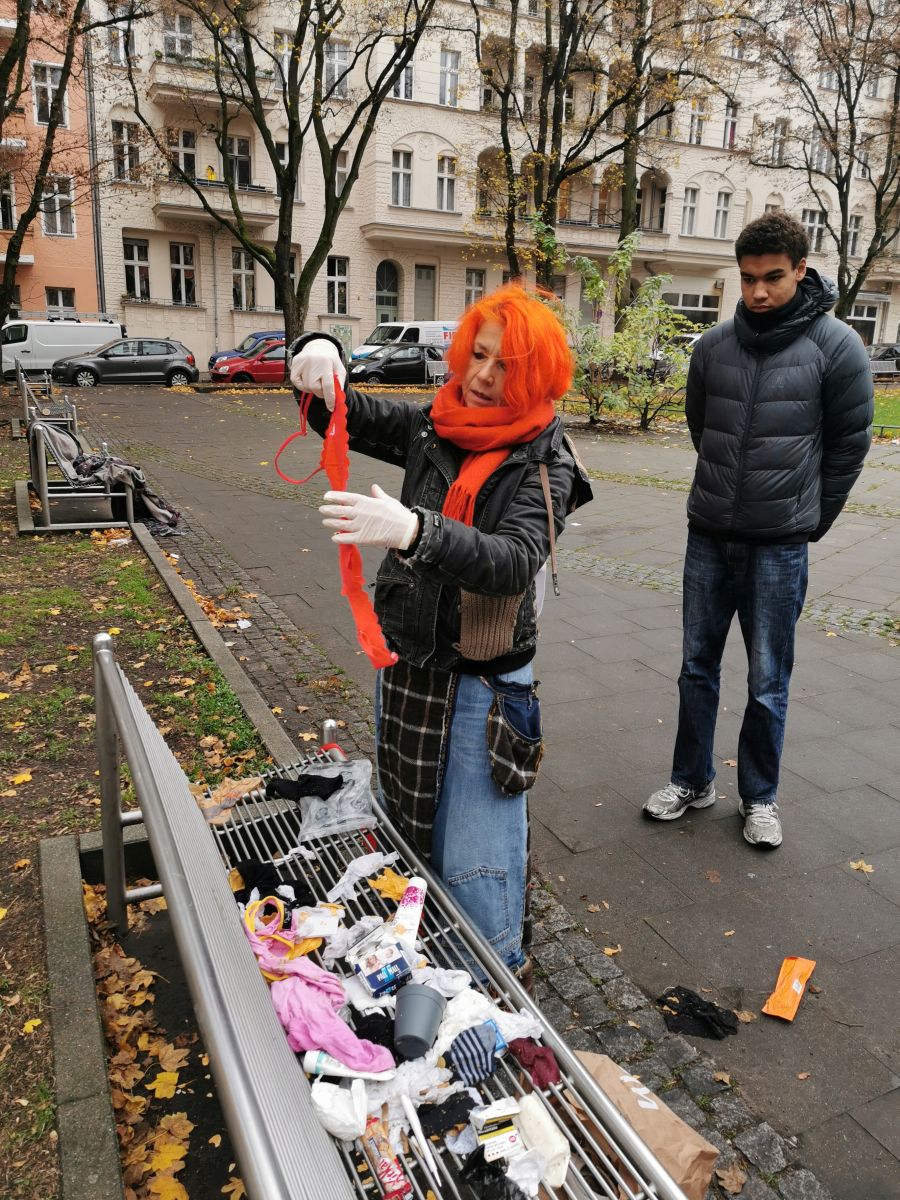
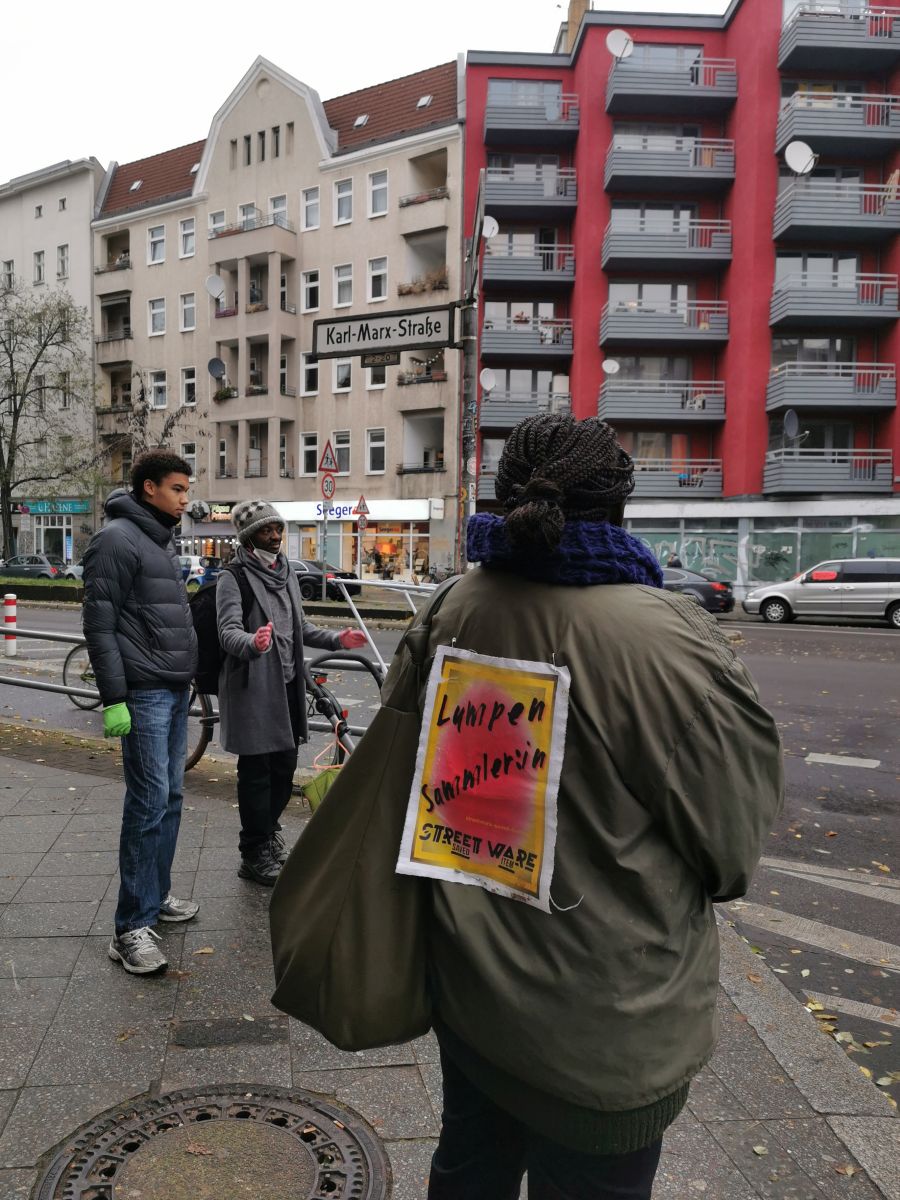

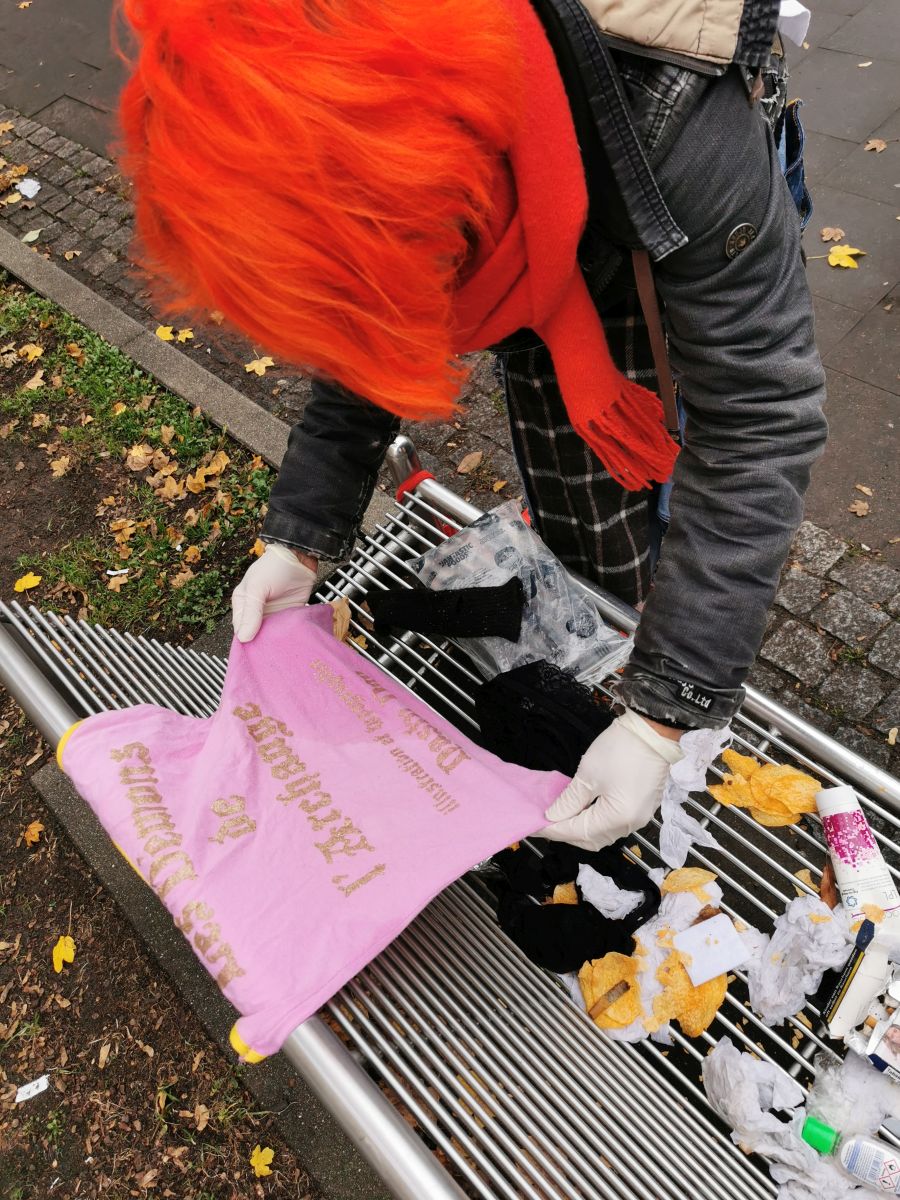
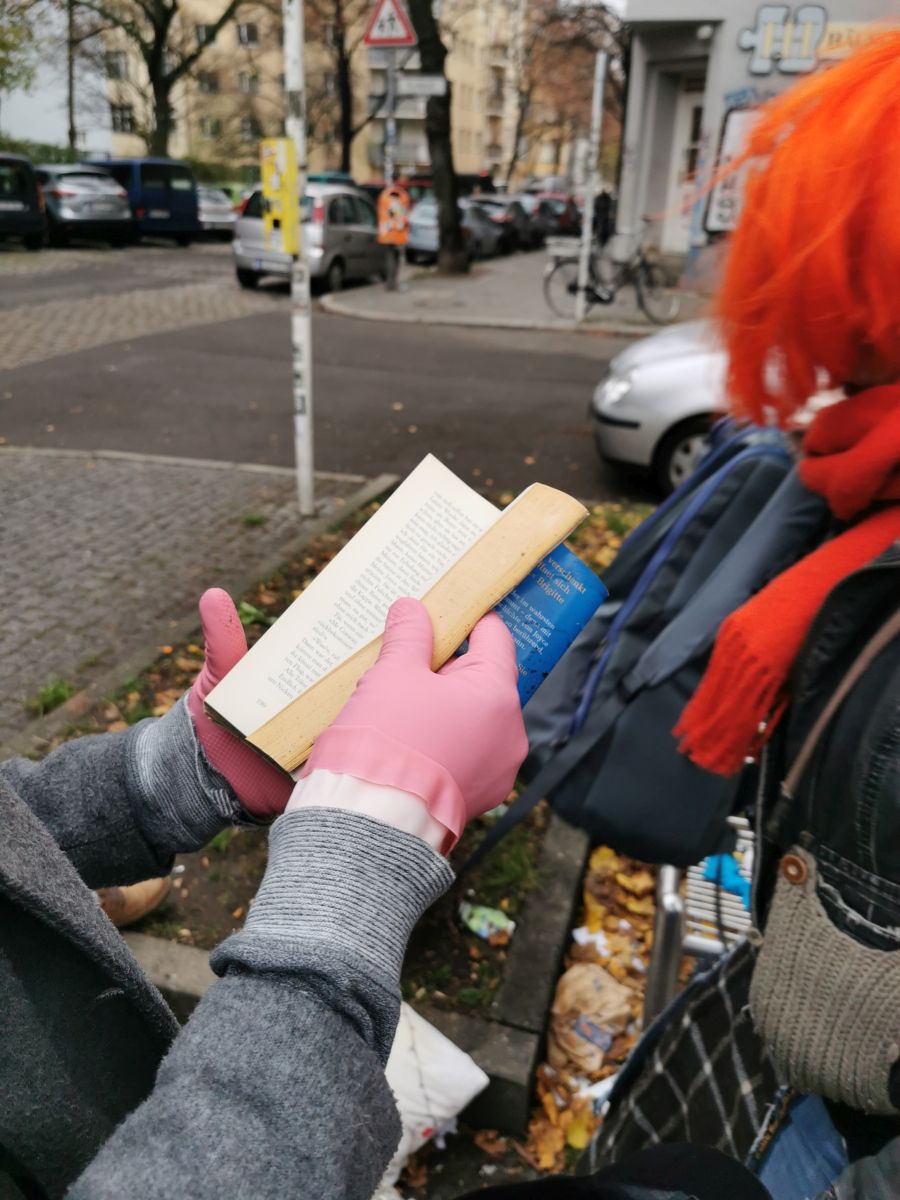
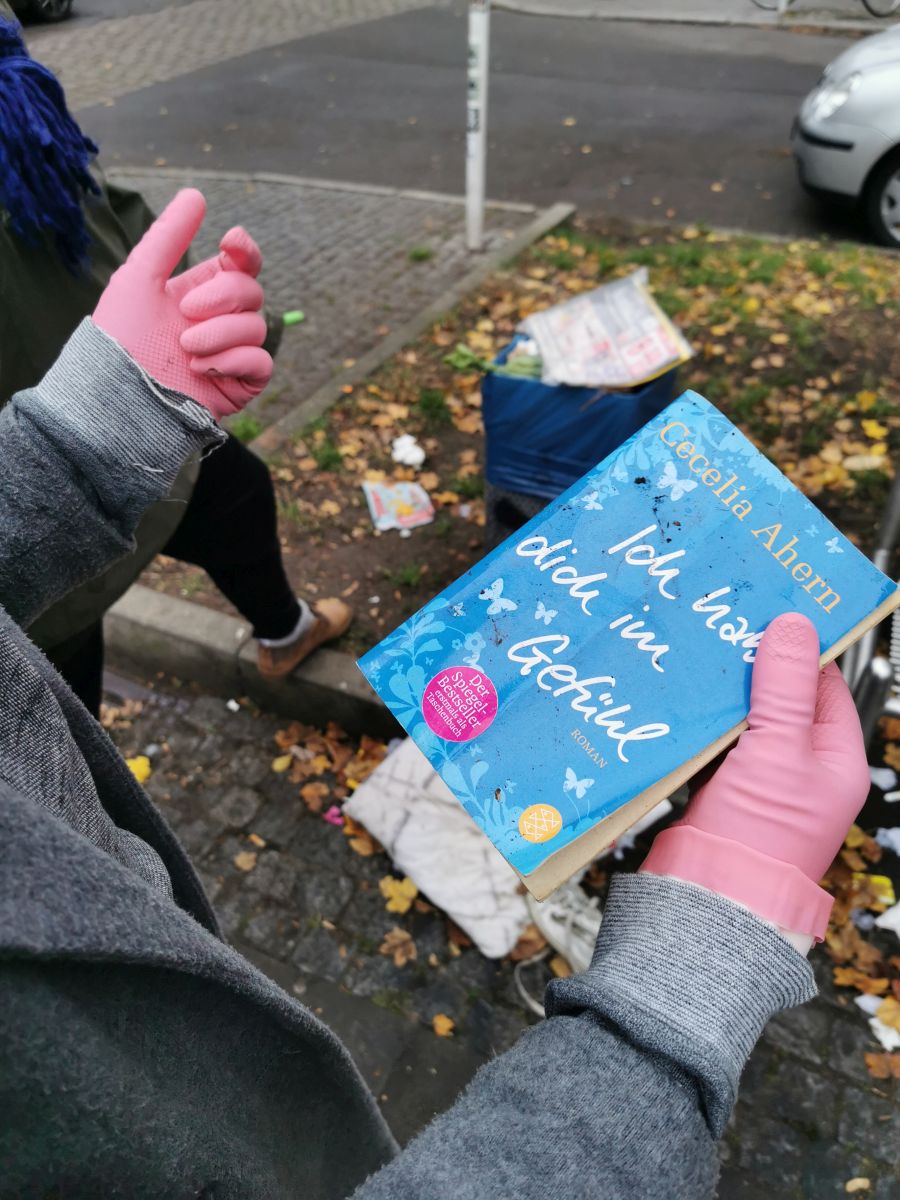
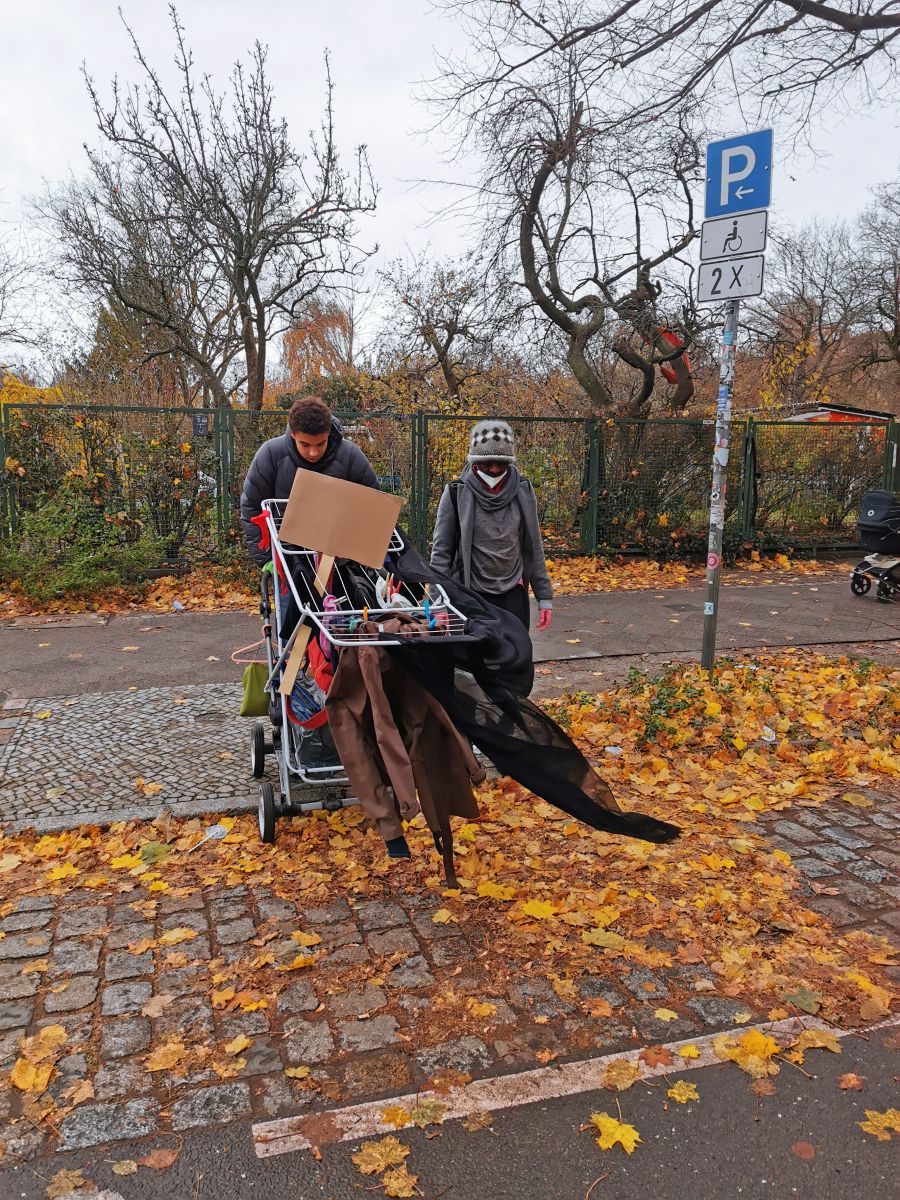
Recent Comments